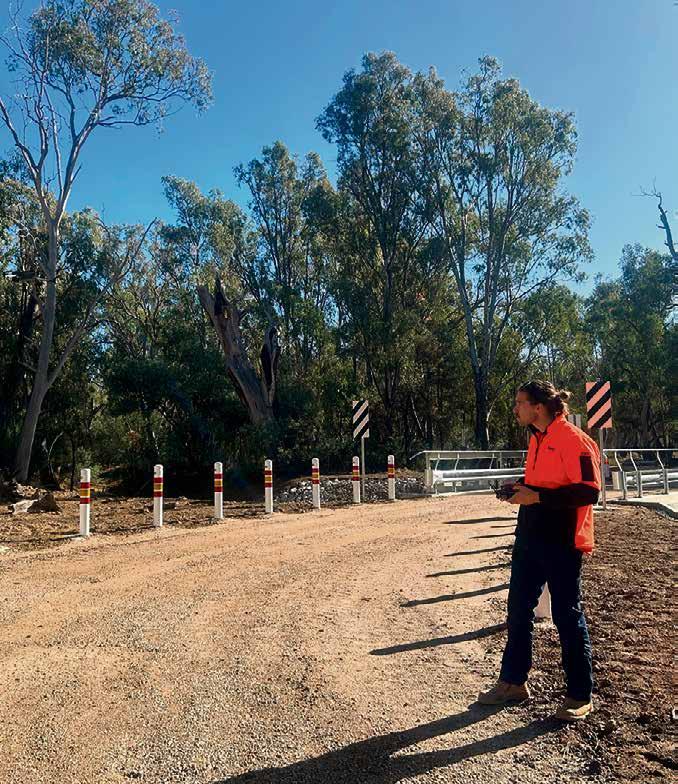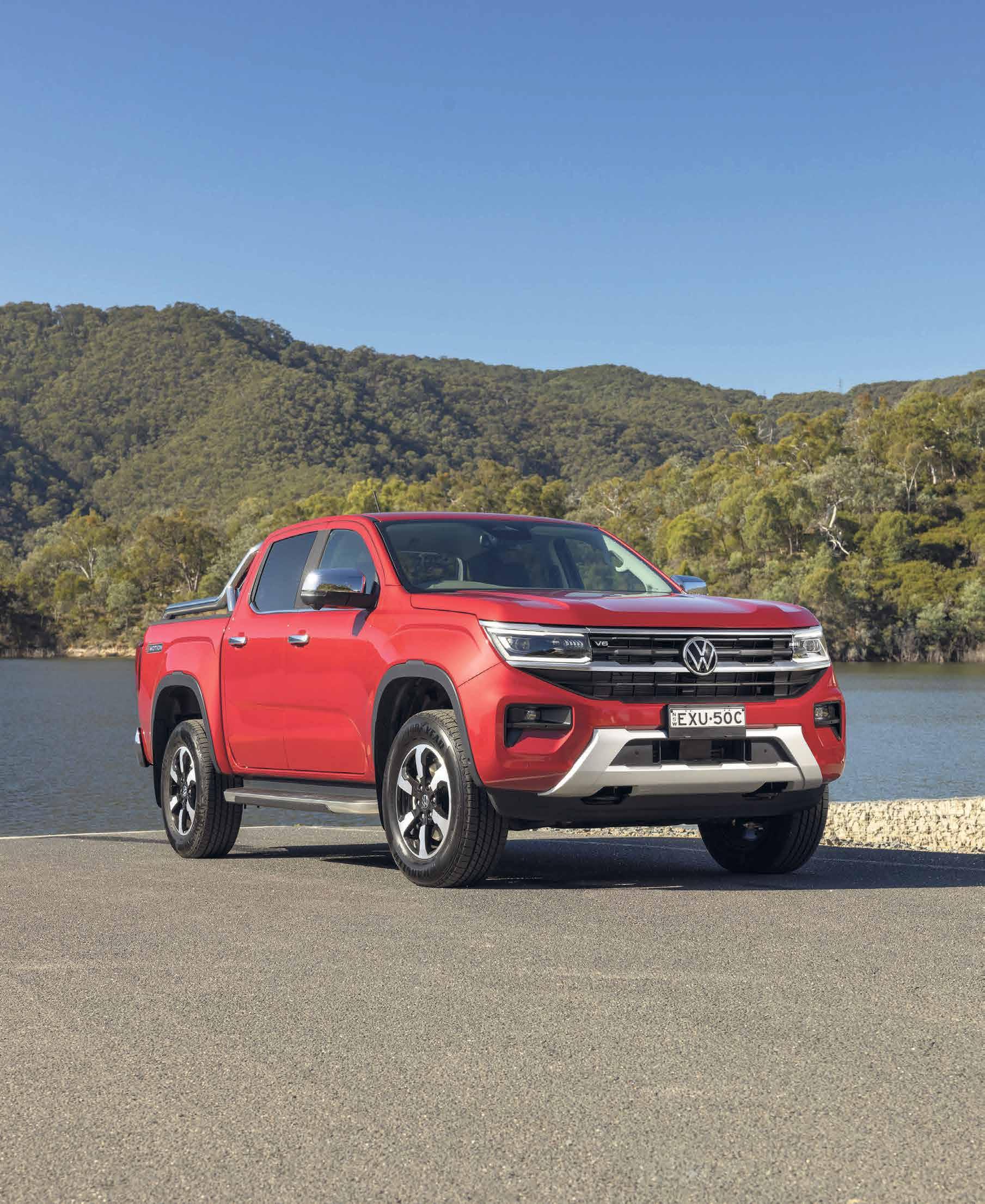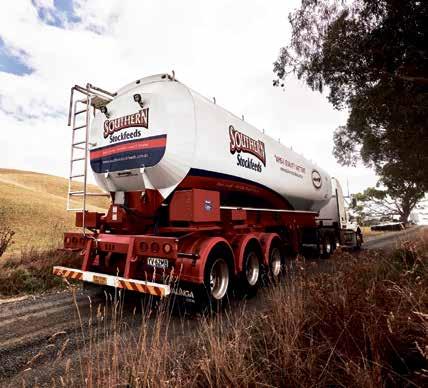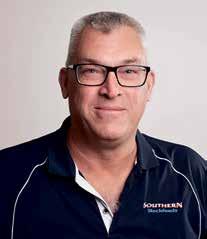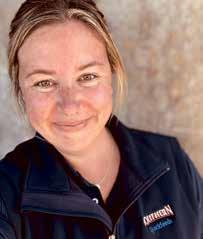
Winery and its owners are a work in progress


Winery and its owners are a work in progress
GOTAFE’s new non-accredited agriculture and horticulture short courses are offering students a path to success.
GOTAFE’s new non-accredited agriculture and horticulture short courses are offering students a path to success.
The current course offering as part of the funding includes Introduction to Farm Fencing (SCFFENCE24), Introduction to Biosecurity Principles (SCBIOSEC24), Introduction to Greenhouse Hydroponics (SCGREENH24) and Find Your Passion in Agriculture or Horticulture (SCFYPASN24).
The current course offering as part of the funding includes Introduction to Farm Fencing (SCFFENCE24), Introduction to Biosecurity Principles (SCBIOSEC24), Introduction to Greenhouse Hydroponics (SCGREENH24) and Find Your Passion in Agriculture or Horticulture (SCFYPASN24).
GOTAFE’s non-accredited Agriculture and Horticulture short courses are your path to success.
GOTAFE’s non-accredited Agriculture and Horticulture short courses are your path to success.
Introduction to Farm Fencing (SCFFENCE24)
Introduction to Farm Fencing (SCFFENCE24)
Introduction to Greenhouse Hydroponics (SCGREENH24)
Introduction to Greenhouse Hydroponics (SCGREENH24)
These courses aim to upskill existing industry workers and to expose younger individuals to the agriculture and horticulture sectors and the associated careers.
These courses aim to upskill existing industry workers and to expose younger individuals to the agriculture and horticulture sectors and the associated careers.
These courses will upskill existing workers in the agriculture and horticulture industries.
These courses will upskill existing workers in the agriculture and horticulture industries.
Several new courses are under development, covering a range of topics from managing staff in a farm environment, to using Telehandlers safely, and pregnancy testing in cattle. Our short courses will add to your agricultural and horticultural know-how.
The new courses aim to attract diverse cohorts and encourage community members to undertake new and enhanced training.
Introduction to Biosecurity Principles (SCBIOSEC24)
Introduction to Biosecurity Principles (SCBIOSEC24)
Find Your Passion in Agriculture or Horticulture (SCFYPASN24)
Find Your Passion in Agriculture or Horticulture (SCFYPASN24)
Several new courses are under development, covering a range of topics from managing staff in a farm environment, to using Telehandlers safely, and pregnancy testing in cattle. Our short courses will add to your agricultural and horticultural know-how.
The new courses aim to attract diverse cohorts and encourage community members to undertake new and enhanced training.
The funding will enhance quality of education delivery, which is currently conducted at GOTAFE’s William Orr campus. Located on a 120-hectare property on the outskirts of Shepparton, a large part of the campus is used as a working farm, giving agriculture and horticulture students the perfect opportunity to gain hands-on experience as part of their training.
The funding will enhance quality of education delivery, which is currently conducted at GOTAFE’s William Orr campus. Located on a 120-hectare property on the outskirts of Shepparton, a large part of the campus is used as a working farm, giving agriculture and horticulture students the perfect opportunity to gain hands-on experience as part of their training.
Principles and
Whether you are passionate about environmental conservation, love working with animals, or preparing to take over the family farm, GOTAFE has a range of Land and Animals courses will teach you the skills you need to make a positive contribution to the health of our regional industries.
Whether you are passionate about environmental conservation, love working with animals, or preparing to take over the family farm, GOTAFE has a range of Land and Animals courses will teach you the skills you need to make a positive contribution to the health of our regional industries.

Learn specialised skills in agriculture or horticulture, contribute to Australia’s legacy of award-winning winemakers, or receive world-class training in equine studies. You will learn the latest science and techniques needed to succeed in agribusiness, and practical skills you can apply on your own land, with your own crops and animals.
Learn specialised skills in agriculture or horticulture, contribute to Australia’s legacy of award-winning winemakers, or receive world-class training in equine studies. You will learn the latest science and techniques needed to succeed in agribusiness, and practical skills you can apply on your own land, with your own crops and animals.
Cultivate your passion for regenerative practices, learn skills in new farming technology and safety, all while gaining practical experience in a real production environment at our campus farm.
Cultivate your passion for regenerative practices, learn skills in new farming technology and safety, all while gaining practical experience in a real production environment at our campus farm.
COURSES COMING SOON
People Management in a Farm Environment
People Management in a Farm Environment
Farm Safety Worker Induction
Farm Safety Worker Induction
Introduction to Farm Machinery Maintenance
Introduction to Farm Machinery Maintenance
Cow Pregnancy Testing
Cow Pregnancy Testing
Farm Safety - Livestock Handling
Farm Safety - Livestock Handling
Electronic Monitoring - Livestock Safety and Welfare
Electronic Monitoring - Livestock Safety and Welfare
Safe Use and Maintenance of Tractors
Safe Use and Maintenance of Tractors
Safe Use of Telehandlers
Safe Use of Telehandlers
Be part of the future of agriculture. Scan the QR code to explore available and coming soon courses today.
Be part of the future of agriculture. Scan the QR code to explore available and coming soon courses today.
Short course dates and times are subject to change, pending course enrolments and availability at the discretion of GOTAFE. Accredited short courses can contribute to AQF qualifications. Those that are not accredited have course codes commencing with ‘SC’, and do not contribute to AQF qualifications.
Short course dates and times are subject to change, pending course enrolments and availability at the discretion of GOTAFE. Accredited short courses can contribute to AQF qualifications. Those that are not accredited have course codes commencing with ‘SC’, and do not contribute to AQF qualifications.
Certificate II in Agriculture (AHC20122) student Bella Green is one of many students completing study at William Orr.
Certificate II in Agriculture (AHC20122) student Bella Green is one of many students completing study at William Orr.
“I have always had a connection to the outdoors, whether that be through camping, gardening, hunting or working with animals,” she said.
“I have always had a connection to the outdoors, whether that be through camping, gardening, hunting or working with animals,” she said.
“I chose to pursue a hands-on educational journey as it would give me the skills needed to progress my passion into a career.”
“I chose to pursue a hands-on educational journey as it would give me the skills needed to progress my passion into a career.”
Bella grew up in regional Victoria, with her father coming from a farming background in the UK.
Bella grew up in regional Victoria, with her father coming from a farming background in the UK.
“I never learned to milk a cow or drive a tractor, but I learned hard work and respect,” she said.
“I never learned to milk a cow or drive a tractor, but I learned hard work and respect,” she said.
Bella enjoys being able to express her individuality and says learning outdoors is what motivates her to come to class.
Bella enjoys being able to express her individuality and says learning outdoors is what motivates her to come to class.
“The whole atmosphere at GOTAFE is very welcoming,” she said.
“The whole atmosphere at GOTAFE is very welcoming,” she said.
“The best part is the inclusiveness and the determination of the trainers to help us achieve our goals.
“The best part is the inclusiveness and the determination of the trainers to help us achieve our goals.
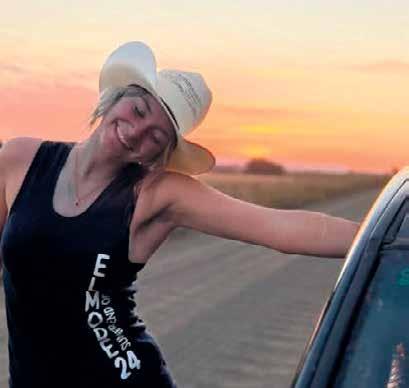
“[The course] is a great way for future enthusiasts to test the waters and see for themselves if it’s something they’d be further interested in,” she said.
“[The course] is a great way for future enthusiasts to test the waters and see for themselves if it’s something they’d be further interested in,” she said.
“It has made someone like me, who is not as easily exposed to the farming world to get involved and have no fear in asking questions.”
“It has made someone like me, who is not as easily exposed to the farming world to get involved and have no fear in asking questions.”
Women like Bella are playing a role in breaking the stigma around women in agriculture.
Women like Bella are playing a role in breaking the stigma around women in agriculture.
“I sometimes…feel I don’t belong,” she said.
“I sometimes…feel I don’t belong,” she said.
“But I understand that being who I am in a world like ours just means I have to prove myself a little more and challenge myself a little harder.
“But I understand that being who I am in a world like ours just means I have to prove myself a little more and challenge myself a little harder.
“I often find myself torn between the options I was given as a woman, some which seem limited to society’s standards.
“I often find myself torn between the options I was given as a woman, some which seem limited to society’s standards.
“To set new standards, the few who dare to try must break the stigma and step out of their comfort zones.”
“To set new standards, the few who dare to try must break the stigma and step out of their comfort zones.”
In agriculture, some 31% of those working in the sector are female.
In agriculture, some 31% of those working in the sector are female.
Gender composition varies greatly between agricultural sub-industries, with farmers and farm managers the most common occupational category working in agriculture, accounting for 56% of all persons working in the sector.
Gender composition varies greatly between agricultural sub-industries, with farmers and farm managers the most common occupational category working in agriculture, accounting for 56% of all persons working in the sector.
Of these, nearly 50% were livestock farmers and farm managers, with labourers accounting for a further 22%.
Of these, nearly 50% were livestock farmers and farm managers, with labourers accounting for a further 22%.
Female owner-operators, higher skill and lower skill employees are more prevalent in other livestock raising (horses, alpacas, and bees), intensive animals (pigs and poultry), dairy, nursery and vegetables.
Female owner-operators, higher skill and lower skill employees are more prevalent in other livestock raising (horses, alpacas, and bees), intensive animals (pigs and poultry), dairy, nursery and vegetables.
“GOTAFE has offered me the opportunities to use machinery and livestock, which were not available to me at home.”
Bella said the course has made her more confident and has given her the experience required to work in the agriculture industry.
GOTAFE’s brand new non-accredited Agriculture & Horticulture short courses are your path to success.
To anyone considering a career or education pathway in agriculture or horticulture, Bella says that “to discover new horizons, you must first have the courage to lose sight of the shore.”
To anyone considering a career or education pathway in agriculture or horticulture, Bella says that “to discover new horizons, you must first have the courage to lose sight of the shore.”
“When you are good at something and you are passionate, the only person stopping you from reaching your goals is yourself.”
“When you are good at something and you are passionate, the only person stopping you from reaching your goals is yourself.”
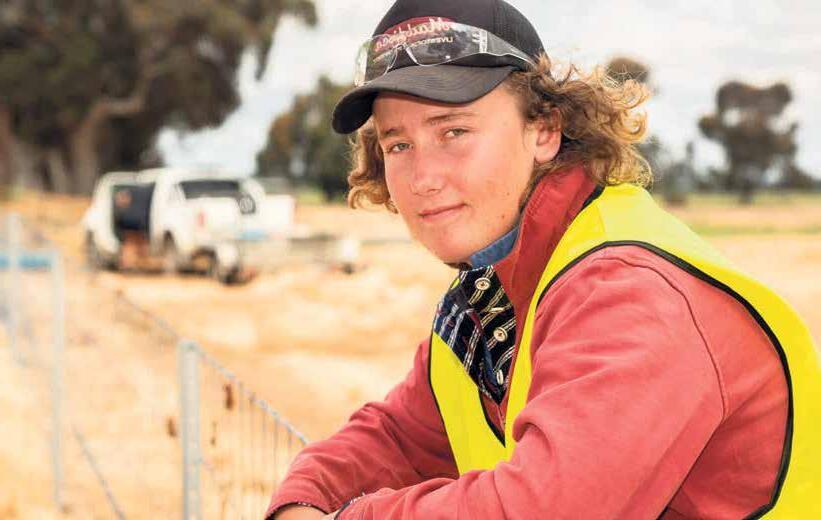



See page 8.
Editor Sandy Lloyd
Writers
Andy
Geoff Adams
Sophie Baldwin
Jeanette Severs
Rick Bayne
Photographers
Andy Wilson
Rick Bayne
Sub-editor
Kylie
Advertising
Alan Kellock
Peter Wicks
Simone
Advertising
Graphic
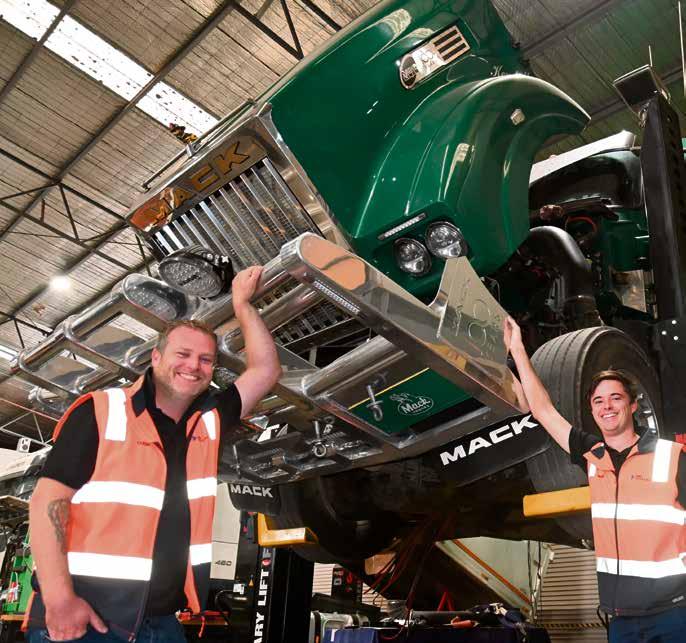
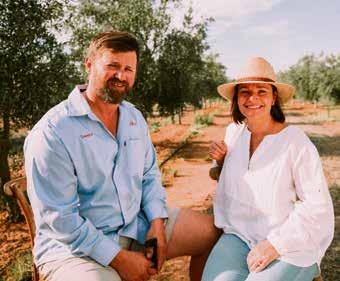

Editorial: (03) 5820 3252
Advertising: (03) 5831 2312













The sizeable workshop at CMV Truck & Bus in Shepparton is testament to why the awardwinning dealership is about to start building new premises which are planned to open in 2025.
Trucks of all sizes fill the workshop as the company’s team of more than a dozen technicians buzz around the vehicles.
The company has long boasted providing high-quality service and parts to its customers, but has now branched into selling the latest Volvo, Mack and UD trucks and plans to more than dabble in electric vehicles.
Branch manager Brodie Gray has just returned from Sweden where some training at the Volvo plant in Gothenburg has him up to speed.
Sales manager Leigh Benbow found time before dashing off to some rural customers to give AgFocus a whistlestop tour of the premises.
Since buying out the company’s Shepparton sub-dealer three years ago, CMV has grown its staff from nine to 29, along with Leigh as sales manager in time to introduce their stable of new brands.
The community presence of CMV is also felt through its contributions to local organisations such as the Lighthouse Project, Beyond Housing and Foodshare.
In addition, the company could well be recognised as some form of employer-of-the-year through the wellbeing management of its staff through health insurance services, financial education and myotherapy (soft-tissue repair) sessions.
Vehicle sales are also opening up in agriculture, which Leigh describes as a “huge chunk” of the market, with a truck currently getting fitted out in time for next summer’s harvest.
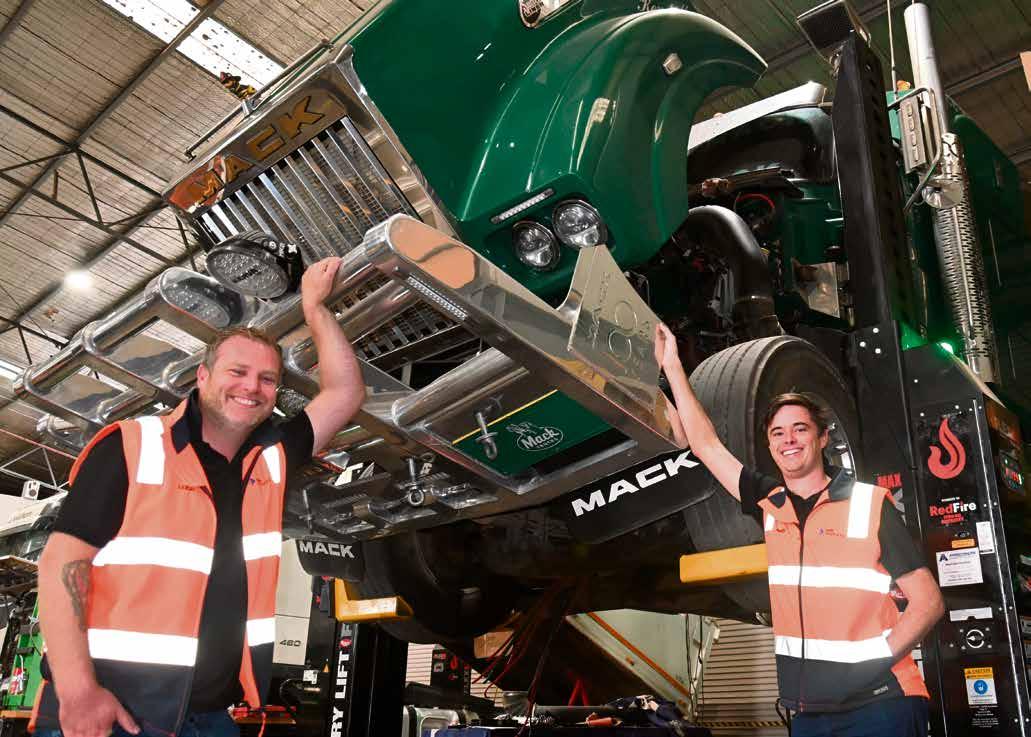
“Agriculture is a large part of what we do,” Leigh said.
“We can help with transporting grain and hay and the combinations are getting bigger, and anything north of Shepparton is really that market.
CMV as a company also owns vineyards near Longhorn Creek and nut farms at Robinvale.
“It goes hand-in-hand with us and transport,” Leigh said.
“Last year we took a group of our truck customers and gave them a tour through our farms because for most farming customers, transport is a large part of their business.
“We are happy to show what we’re doing on that side of things, so it becomes a two-way relationship and not just a transaction, that’s for sure.”
The company is also well-poised for the electric vehicle revolution, but Leigh said the technology was well and truly here already.
A recent four-week trial with a customer of an electric rear-loading truck returned positive results.
“We were getting a full shift of work out of the vehicle on just one charge,” Leigh said.
“Electric vehicles are not here to take over line haul or anything, but there is

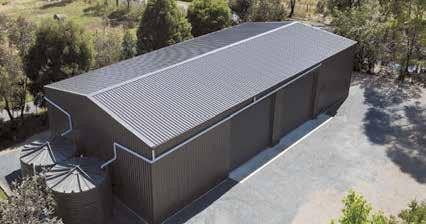

definitely a place for electrical vehicle technology.
“We can order anything we have in diesel in electrical now.”
With the extensive research Volvo has done in the development of electric vehicles, CMV has taken some customers over to Gothenburg to see for themselves.
“Going over there you are naturally a bit sceptical at the start,” Leigh said.
“But once you drive one you realise it is amazing the power that these vehicles have is incredible.
“It has been reliable; its future is promising.”
All Sheds offer quality sheds that are custom designed to suit your needs.
From concept to permits, fabrication and construction. We’re with you every step of the way, from start to finish. Get in touch today.
Introducing the Grenadier Quartermaster. Your multi-purpose 4X4. Built to get the job done. Highly capable and adaptable, with seating for five and a solid cargo bay. Tackle whatever task you set it. Master even the toughest terrain. And always be on hand when you need it. No drama. No fuss. Call us today.


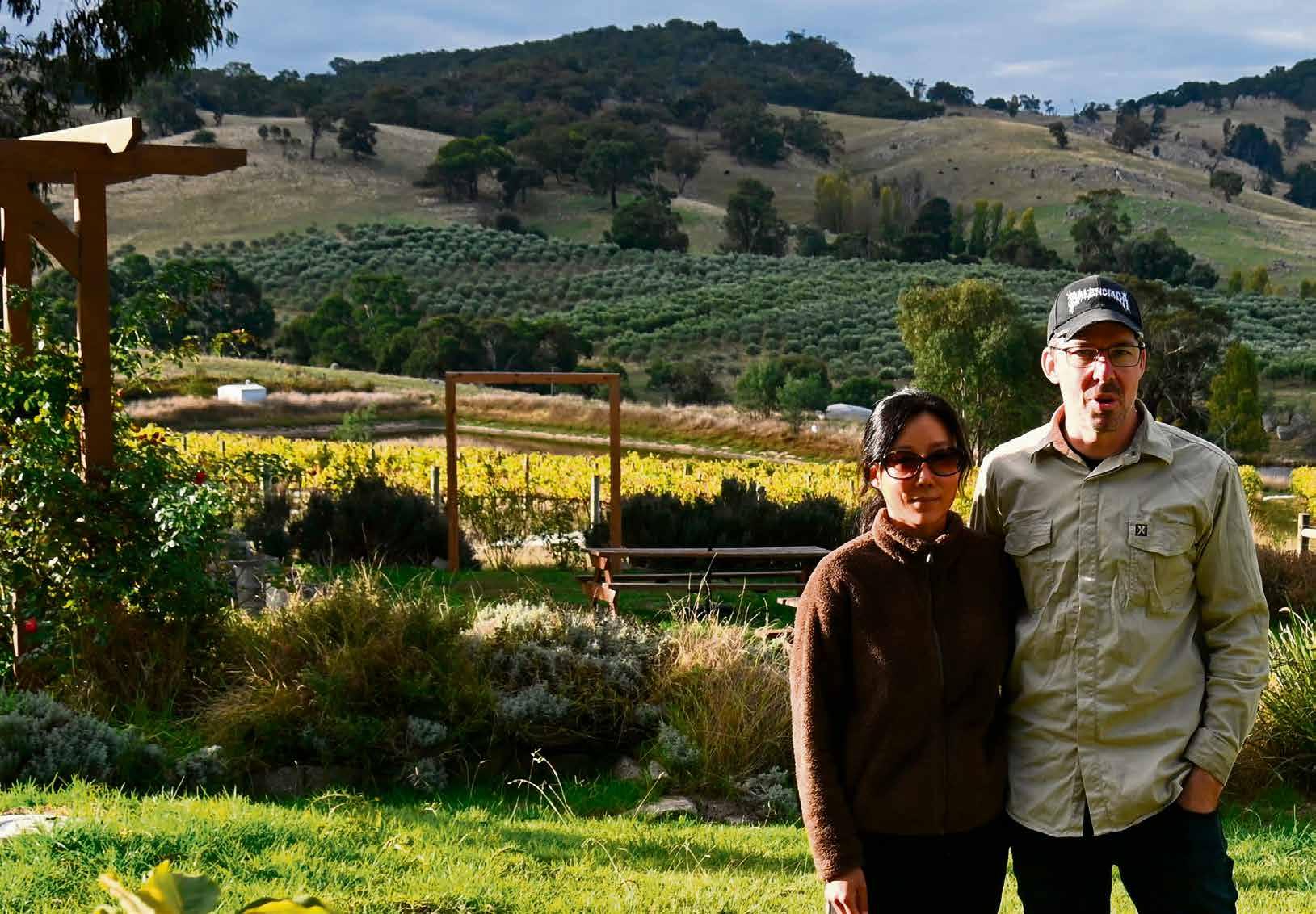
There is no playbook for executing the perfect tree change.
If there was, the new owners of McIvor Estate situated among the scattered granite boulders just west of Puckapunyal would have their own chapter, towards the back perhaps, or an appendix continually reprinted as an ongoing addendum or maybe just a QR code for updates.
Simon Connelly and Eunji Kim defy convention.
Sitting down with Simon on a dining table so long and sturdy that you’d swear it was a retired bowling lane from a disused alley somewhere, while a toffee-coloured border collie pees in her excitement onto your boot while she leaps for affection, you’re really only just warming up to the adventure.
Throw into the newly minted vintner’s story some luck, bitcoin, lots of technology, karaoke (that’s right), battery-operated whiz-bang promotion, artificial intelligence, zero nonsense and a candour with what needs yet to be learnt, and you still don’t come to a definitive conclusion.
Add a twilight sky filled with cockatoos and currawongs that scarper with each random boom of an air canon (I jumped each time) and the challenges continue, not least Simon’s dry humour to which one needs conditioning:
“Oh, that’s Dad, we let him out with a shotgun occasionally he’s harmless.”
“And do you like the table? Can you make it out? It’s a recycled lane from an old bowling alley.”
I can now see the fine lines and and guiding dots on the surface.
It’s an awful lot to take in.
Then you swirl a splash of the 2017 Sangiovese vintage around the glass and then again around your tongue and you remember that in the wine industry, you can quote just about anyone to make any point you like.
In this case, it’s Roger Ascham, tutor to Elizabeth the First: “By experience, we find out a short way by a long wandering.”
Simon and Eunji have a long journey ahead of them, but it has been made much easier by having bought with the estate a back catalogue of
bottled vintages that are in very good shape indeed.
The journey is made easier still thanks to local support, a loyal mentor-cum-vigneron and the open welcome that they have for what’s still to come.
Sam Plunkett, founder of Wine By Sam, is part of Simon’s journey and praised his rapid learning pace and insatiable curiosity, noting his remarkable memory and attention to detail.
“He’s learning quickly,” Sam told Ag Focus
“He’s crazy smart and asks a lot of questions, he’s always trying to understand new things.
“And what a memory: he can feed back to me things we spoke about 12 months ago which I think he should barely remember.
“He recalled back to me the conversion which I only told him only the once about converting sugar concentration to alcohol content, and I thought ‘how the hell does he remember all that?’
“He recalled all of the numbers!”
The redefining of McIvor Estate does not hide that it is a work in progress that ignites Simon’s imagination and, not long after, that of any visitor.
This is due to Simon having on hand the luxury of a product which he is in no hurry to sell but is selling all the same through a cellar door and restaurant he’s had recently built from an old shed.
Simon met Eunji in 2010 at a karaoke bar, possibly singing Radiohead’s Creep he says it was a bit too foggy to remember and has experience in organising events and the nightclub scene professionally.
Since 2017, he has helped start-up tech businesses find their way into blockchain programming (I had to Google it) and is now a tech-savvy and sustainability-driven vintner in the making.
He has an electric vehicle to get around the farm and an electric lawnmower and is waiting for the electric tractor one day.
His take on starting the vineyard is more earthed than the clones starting their autumnal colour change.
There is personality in how Eunji Kim and Simon Connelly deliver their pitch to customers. “I genuinely like talking about wine and I genuinely like engagement and talking to people and finding out about their lives,” Simon said. “But at the same time, I don’t want to overwhelm people.”
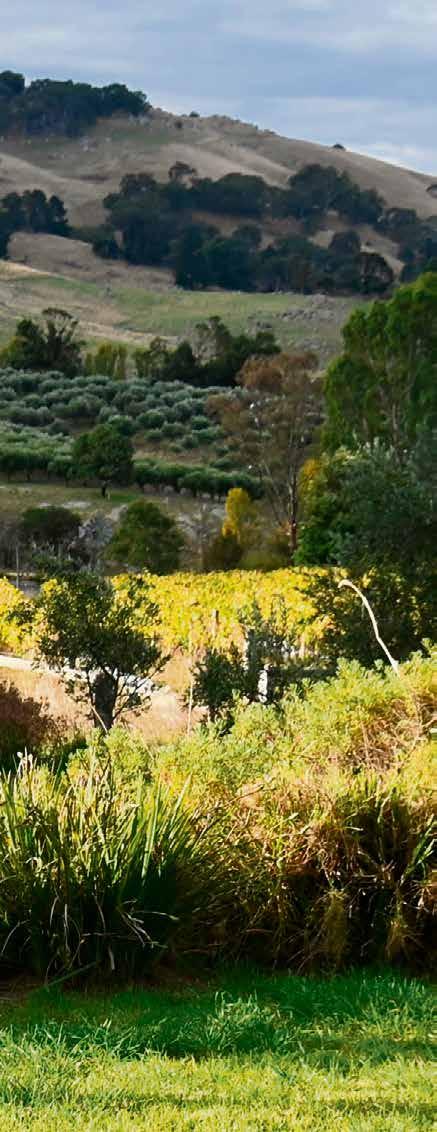
“I cut my teeth as soon as we moved in, pruning the vines; and I know it’s a steep learning curve ahead, but there’s also a little bit of trial and error.
“I don’t think it’s all a cakewalk, I mean, the science behind caring about vines is definitely something I have got to listen to, but there are other practical things that just don’t always make sense.
“But they’re not new vines that have just been put in the ground, so there is something to build on.
“So, I just thought I’d taste and see and it has worked out so far.”
I was doing the same with something else by day’s end.
McIvor grows 10 different varietals of grapes on 11 hectares and across the valley there are 8 ha of well-aged olive trees from which he has had a pressing already.
This year the grapes stayed on the vines up to five weeks longer than surrounding vineyards McIvor is slightly elevated so they have developed a fuller flavour.
On making visiting the vineyard something different from other winery

 Eunji Kim contributes to the restaurant and cellar with her baking skills, preparing here a Basque cheesecake for guests.
Eunji Kim contributes to the restaurant and cellar with her baking skills, preparing here a Basque cheesecake for guests.
experiences, Simon has quite a plan that he thinks will go beyond the conventional.
“We had a wine tasting group here the other day, and I showed a gentleman how to use a refractometer and, yeah, it was cool because you don’t get that kind of stuff at other vineyards and, also, it’s still quite new to me,” he said.
“And I love it; I love checking the sugar content and most winemakers would have no interest in showing anyone that.
“I want this place to be at the next level this is how it should be.”
He also takes the wine-tasting experience into the personal, and while there is definitely personality in his delivery, he knows that he does not want to overwhelm people.
“I genuinely like talking about wine and I genuinely like engagement and talking to people and finding out about their lives.”
I ask what he wanted his winery to be known for in 20 years and his answer took much deliberation.
“That sort of depends on whether I’m still standing here behind the bar because would I want to do that every weekend for the rest of my life? Maybe not, but you know, while I’m still finding my feet here, I actually enjoy it.
“I don’t understand all about tasting, but I do want to get into it.”
The question is pressed further and there’s some out-loud thinking to get through before he nails it.
“What would I want people to say?
“I haven’t thought about the elevator pitch that much to be honest.
“Amazing, amazing landscape. Still not there, for mine.
“Like I mean, this is the epitome of other places.”
Finally: “Just a killer experience I want visitors to take in the full experience.
“You don’t need to be told what to experience you just need to soak it up and I guess here we allow people to just relax and take it all in and not feel rushed like you can at other wineries.”
“We don’t charge for wine tasting most vineyards do because I figure if people liked the wine, they’ll buy it, so I don’t ever put that pressure on them: you can tell that people like the wine and if they don’t like it then there’s no way I want to push them.
“If they say they cannot choose which one to buy, then for me that’s a success metric.
“But at the same time, there’s so many different varieties we’ve got that if there’s not something they like, I don’t know why they’re at a winery.”
Simon also wants to develop Kalamata olives for the table and work on what he calls the ‘verticals’ of the business, such as accommodation and hosting weddings.
The building of their restaurant from an old shed into something quite nice
for casual dining is already a ‘vertical’. It opened in December.
Things continue to develop fast: labels designed by artificial intelligence, sparkling Shiraz made in the proper champagne style might cost more when it’s launched but, in his style, this is because ‘it’s going to be unbelievable’.
He has plans for some novel marketing using the expertise of tech’ associates and has quite a unique label planned which he is keeping under wraps for now.
“And we want to gear some things toward nightclubs to get that niche label into those clubs like a luxury brand for fun.
“I just want to try and make a little bit of mark and do something different and not do the same as everyone else.”
A tour in an electric Polaris through the olive trees up to the magnificent rear hill covered with boulders passes flying kangaroos and sleeping steers who rustle up a bit of panic in the dust.
I am asked to alight the vehicle so he can cross an impossible-looking ford through a creek where last year’s rain has washed the earth down to the culverts.
I was glad I got out as Simon likes to do his own stunts; no-one got hurt.
We pass the air canon, and it fires not long after. I jump.
“Missed!” he yells.
The afternoon ended with a tasting session in the neat-as-a-pin restaurant-cum-cellar door.
The experience at the bar unfolded exactly as he described in his intended future plan.
There’s no hyperbole in saying that the very peppery raw olive oil served along with two balsamic vinegars and dipping bread, was something else, and the 2017 Sangiovese stood out as the finest wine I have ever tried, its taste resembling honey, a departure from the typical descriptors found on labels.
Simon spoke about wine complexity and tannins with the finesse of a professional.
He also delved into the mineral impact on the taste of wine due to the granite that the land sits atop.
Despite his modesty, he is definitely not faking-until-making. He’s honest.
“No, I am getting there,” he insists.
The fruit has already got there and over in Seymour, Sam receives Simon’s harvest to ferment and bottle up and commends its quality, highlighting McIvor Estate’s potential for greatness, beyond just a ‘great’ location.
“The quality of fruit he has produced is a step up; he’s doing all the things to maximise productivity,” Sam said.
“The Shiraz we saw this year was some of the highest quality it could be that one-percenter.
“By that I mean what distinguishes great from good are tiny incremental lifts in quality, and he’s achieving that.
“McIvor Estate could be next-level iconic.”

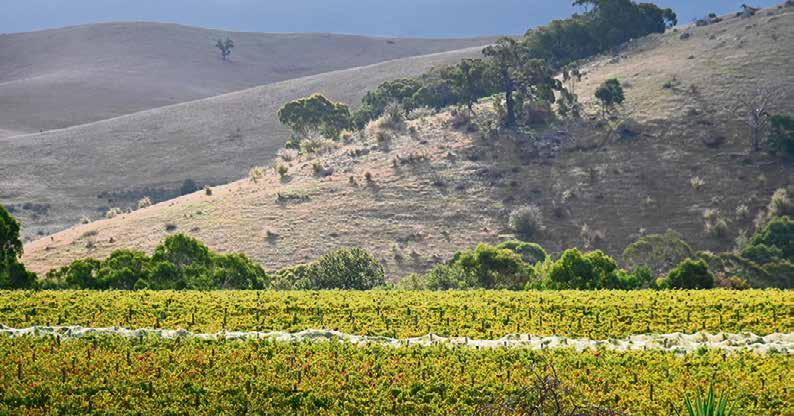
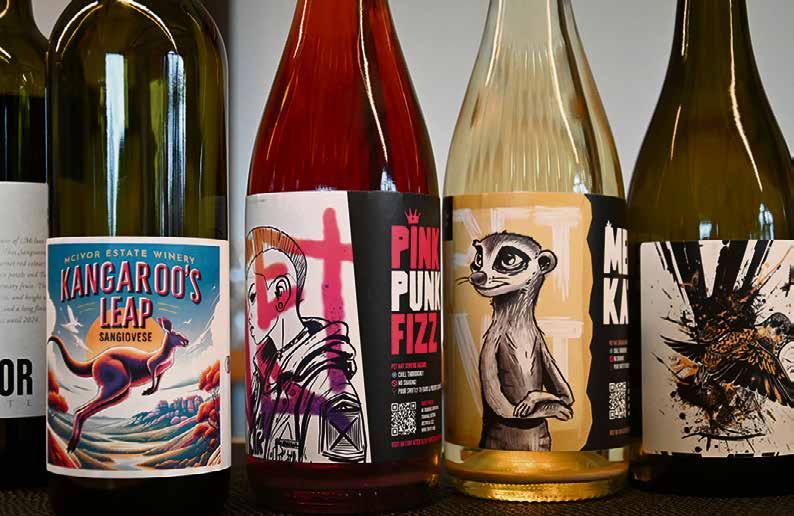 Simon Connelly and Eunji Kim are working towards being off-grid in the near future, to give security to their energy needs. The couple met in 2010 at a karaoke bar and haven’t looked back. Here, Ddori, Syrah and Crypto complete the family.
The higher elevation of the estate compared to surrounding areas resulted in this year’s harvest staying on the vines for up to five weeks longer than elsewhere, allowing the fruit to develop a fuller flavour.
Simon Connelly and Eunji Kim are working towards being off-grid in the near future, to give security to their energy needs. The couple met in 2010 at a karaoke bar and haven’t looked back. Here, Ddori, Syrah and Crypto complete the family.
The higher elevation of the estate compared to surrounding areas resulted in this year’s harvest staying on the vines for up to five weeks longer than elsewhere, allowing the fruit to develop a fuller flavour.

PSC GGIB offers a complete broking package, encompassing technical insurance & advice, market analysis and risk & in-house claims management services


Why PSC Griffiths Goodall?
We are regionally based insurance experts familiar with the risks that the North East area presents.
We live in the community, with many members of our team having rural backgrounds.
What Can PSC Griffiths Goodall Help With?
We are general insurance brokers with over 35 members of staff, and we are able to assist with any form of insurance need.
How Long Has PSC Griffiths Goodall Been In Operation?
Our firm was launched in 1989. All of our senior people have spent multiple decades in the industry.

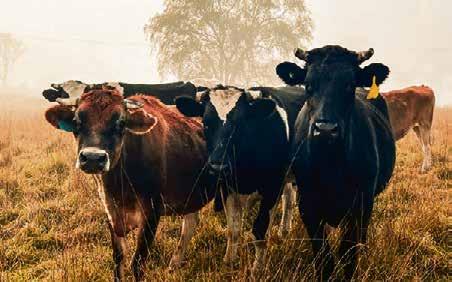
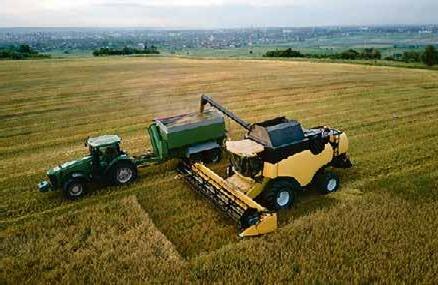
We know insurance. It’s been our business for a very long time, and we are one of the largest regional insurance brokers in the nation
With experience, integrity and all the right underwriter distribution channels, we provide advice and guidance to help you make informed decisions. We are efficient and responsive in everything we do and we always have your best interests at heart, which is why we offer flexible payment arrangements.
We know insurance. It’s been our business for a very long time, and we are one of the largest regional brokers in the nation. Our senior principals and key staff have more than 100 years of continuous experience in all facets

of insurance and our account executives are specialists in the field. It’s this depth of experience that makes such a big difference to you.
PSC Griffiths Goodall Insurance Brokers is a member of the National Insurance Brokers Association, we stay ahead of changes within the industry — and that helps us to provide first class advice and tailor-made service to you.
So give us a call now, and find out how we can help you.

Remaining true to yourself and being authentic was the theme of the keynote speaker at the annual Women in Agriculture lunch.
There were two guest speakers at this year’s lunch VFF president Emma Germano and Cathy McGowan, ex-politician and now author.
Cathy spoke first, talking about the stories she uses to connect to community and her view of agriculture.
“Agriculture has a production side that’s the blokes,” Cathy said.
“And it has a marketing side that’s the women.”
Now in the role of AgriFutures Australia Board chair, Cathy encouraged attendees to participate in courses to advance their skills.
She cited examples from her own life, and what she has learned from attending time management, leadership, mediation and dispute resolution training.
“I’m proudly an Australian woman leader,” she said.
“Doing the Australian Rural Leadership Program course taught me how to change my style about how I deal with people.”
She encouraged attendees to “turn up, speak up and step up to be heard”.
Emma Germano talked about being authentic, even when internal and external forces challenged you.
“Being a women in leadership is different to being a man,” she said.
“We are treated differently.
“I’ve been so conscious over my journey of not playing ‘the woman card’.”
But, Emma said just being a woman in a public leadership role meant you were treated differently.
She said every media outlet wanted to be able to tell their story of her trajectory into the role of VFF president.
This meant that often what she was trying to achieve was clouded by perceptions of her as a young woman, of ethnic background, from a minority agricultural sector.
Those perceptions led to personal attacks in public and private that Emma was not prepared for.
“I can see the issues needed to be heard, but it’s harder to get heard when the focus is on me personally,” she said.
Personal vendettas compounded the risk of being ignored when in her role as VFF president she was advocating against government policy decisions that closed down food production businesses and even an agricultural industry sector overnight as happened during and pre pandemic.
“The personal attacks were based on difference I’m a young woman, I am of ethnic background and I come from what’s perceived as a minority agricultural sector,” Emma said.
“There were many times when I’d be talking to Dad about how hard it was and he’d say, ‘too bad’.
“He and Mum have taught me that demonstrating leadership is about being authentic to myself.
“In the role of VFF president, I’ve learned that when the culture around us encourages us to not speak up, those who get heard are the extreme voices.
“And they don’t represent the majority of us.
“That means the 80 per cent of us in the middle need to support each other.”
Emma quoted statistics to demonstrate farmers are among the most trusted people in the community.
“People trust us to be concerned about the environment, animal welfare, soil health, safe workplaces and producing healthy food,” she said.
“That trust is unusual to many vocations.
“So, if we let the extreme voices be heard, they represent a disproportionate view of what the community believes and supports.
“That’s why we need your voices to be heard,” she said.
One of the biggest challenges Emma has undertaken in her terms as VFF president, is leading a board of management that wants to change the fundamental way the farmer-member organisation operates.
“The board decided income needs to be higher than expenses,” she said.
“By being accountable for change has meant some of our worst challenges have been from within the organisation.”
Emma said she did not understand how change would feel like a threatening process for some people. Those are lessons she has taken on board, sometimes with humility. Her main message was to be authentic and ask for authenticity from other people.
“Leadership will be hard,” Emma said.
“But as dad said, ‘too bad’. There’s no golden key, no ideal pathway, you just have to keep on going.
“And you need to support other people around you. You need all types of people in your team.
“Be authentic that’s what resonates with people.
“This is my final year as president and I thought it would be neat and tidy. It’s still messy.
“But by keeping on going, change inches slowly forward and opponents drop off.
“I’m leaving an opportunity for other people to continue to grow the organisation.”
Emma’s concluding words of advice were to encourage attendees to value diversity.
“We need to enable diversity in thinking and viewpoints to be in the conversation.”
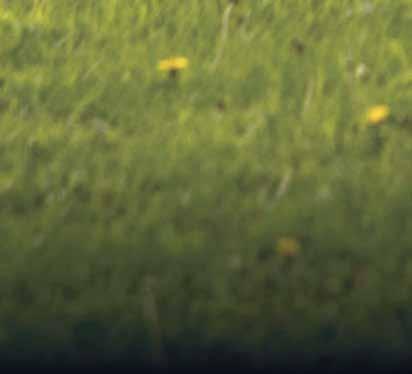


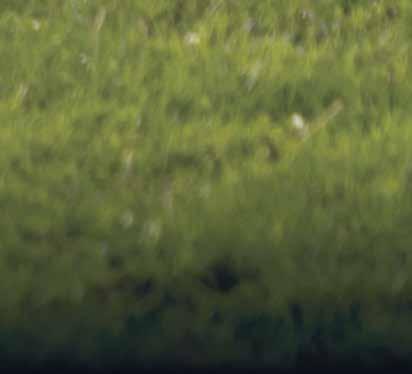
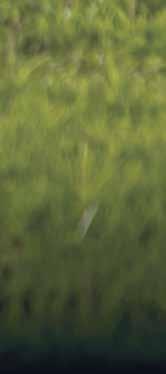

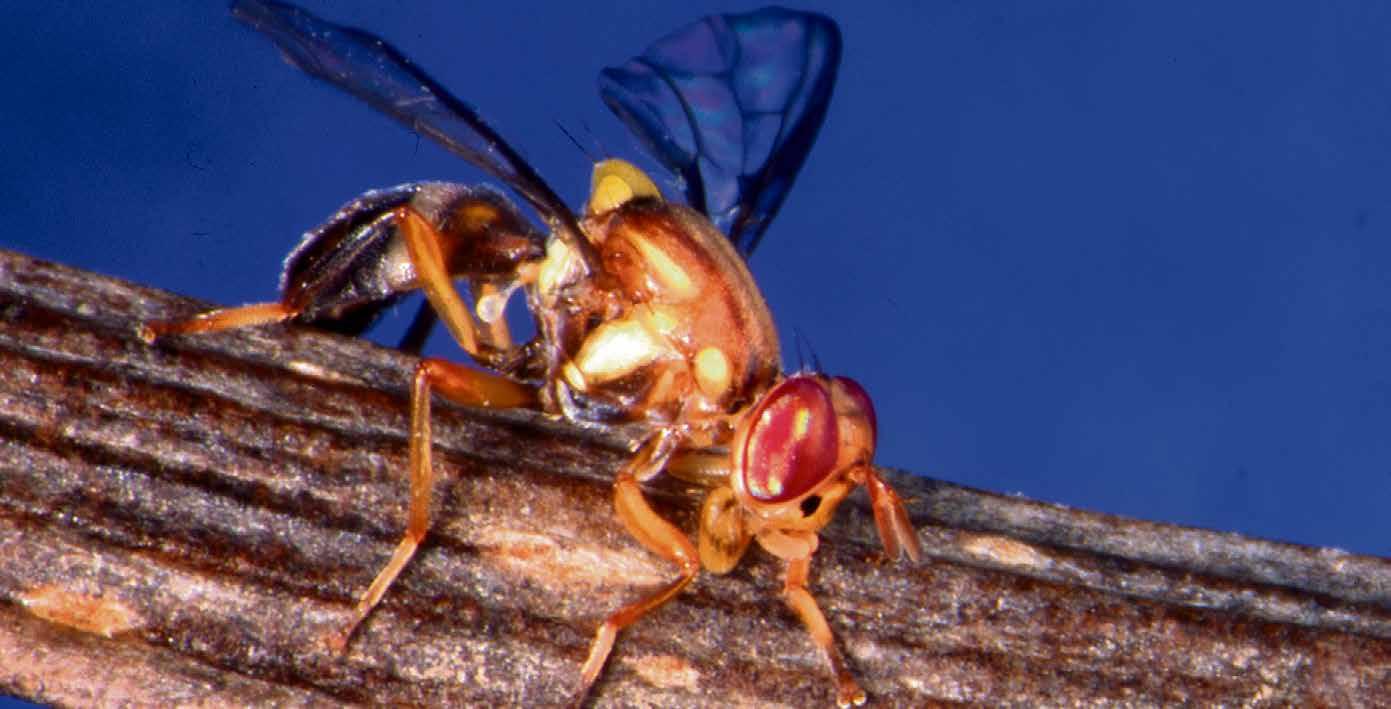
Identification of all the ‘odorant’ genes in the Queensland fruit fly is being targeted by AgVic scientists in collaboration with a La Trobe PhD student in order to better understand the egg-laying behaviour of the native pest.
The fruit fly, Bactrocera tryoni, is a significant threat to horticulture by it laying eggs in ripe fruit and fruiting vegetables, resulting in decay and loss of crops.
A breakthrough from researchers at La Trobe University’s School of Agriculture, Biomedicine and Environment and their collaborators at Agriculture Victoria has the potential to help control the destructive behaviour of the fruit fly.
Associate Dean of research and industry engagement Professor Coral Warr said there was a pressing need for new ways to control fruit fly.
“Half of Australia’s $15 billion horticultural industry is highly susceptible to Queensland fruit fly,” Prof Warr said.
“Effective insecticides were recently withdrawn due to environmental impact concerns, so there is an urgent need to identify new ways to control it.”
Prof Warr said insect behaviours were determined by their sense of smell with odorant receptor proteins used by the fruit fly to detect chemicals emitted by plants.
La Trobe University PhD student Stephen Penrose has identified the most common odorant receptor genes in the fruit fly.
Knowledge of what proteins are produced by the genes and used in odour receptors has potential
for future research to determine control options.
“We found that the Queensland fruit fly has many copies of some genes compared to related species, and we think these may be important for host detection,” Stephen said.
“If this is correct, we may be able to use this knowledge to develop new strategies to modify the behaviour of the Queensland fruit fly, with minimal impact to the environment or other species.”
The widely-used and harmless genetic test species Drosophila melanogaster will be used to study gene function by expressing the fruit fly proteins.
Removal of certain genes by ‘knockout’ (inactivation) processes have the potential to remove the ability for insects to produce the proteins which help detect plant odours.
“Then we study the effect on the fruit flies ability to find their host plants,” Prof Warr said.
“This is an exciting breakthrough in the search for an alternative control method for the Queensland fruit fly, with huge potential for benefits in the horticultural industry.”
Stephen said 55 genes had been identified, a number which would be narrowed down from surveying the species genomes (collection of genes in an animal’s DNA) across Australia to find the most relevant ones.
The project is part of Stephen’s PhD for which he is in his first year having dedicated a masters degree to the investigation and he hopes to have the knockout processes completed by the end of his degree and take the research further into his career.
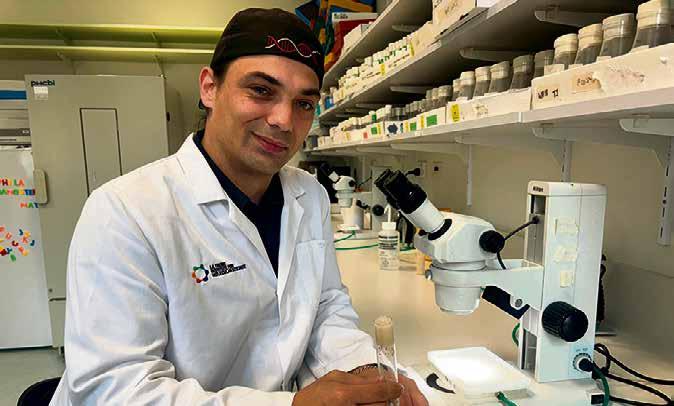
Insect pests are attracted to crop plants by smelling certain chemicals that plants give off.
Stephen Penrose has been able to identify the genes in the Queensland fruit fly which produce certain proteins that it uses for smelling.
Stephen will select the most
frequent genes and transfer them into the harmless Drosophila fly to determine what proteins will attract the fly to certain plants.
A possible outcome from the research is to then design traps for orchards that use the desired odour to reduce Queensland fruit fly infestation.

SECURE YOUR NEW JCB 532-60, 532-70 or 542-70 AGRI, SUPER OR PRO TELEHANDLER* TODAY WITH
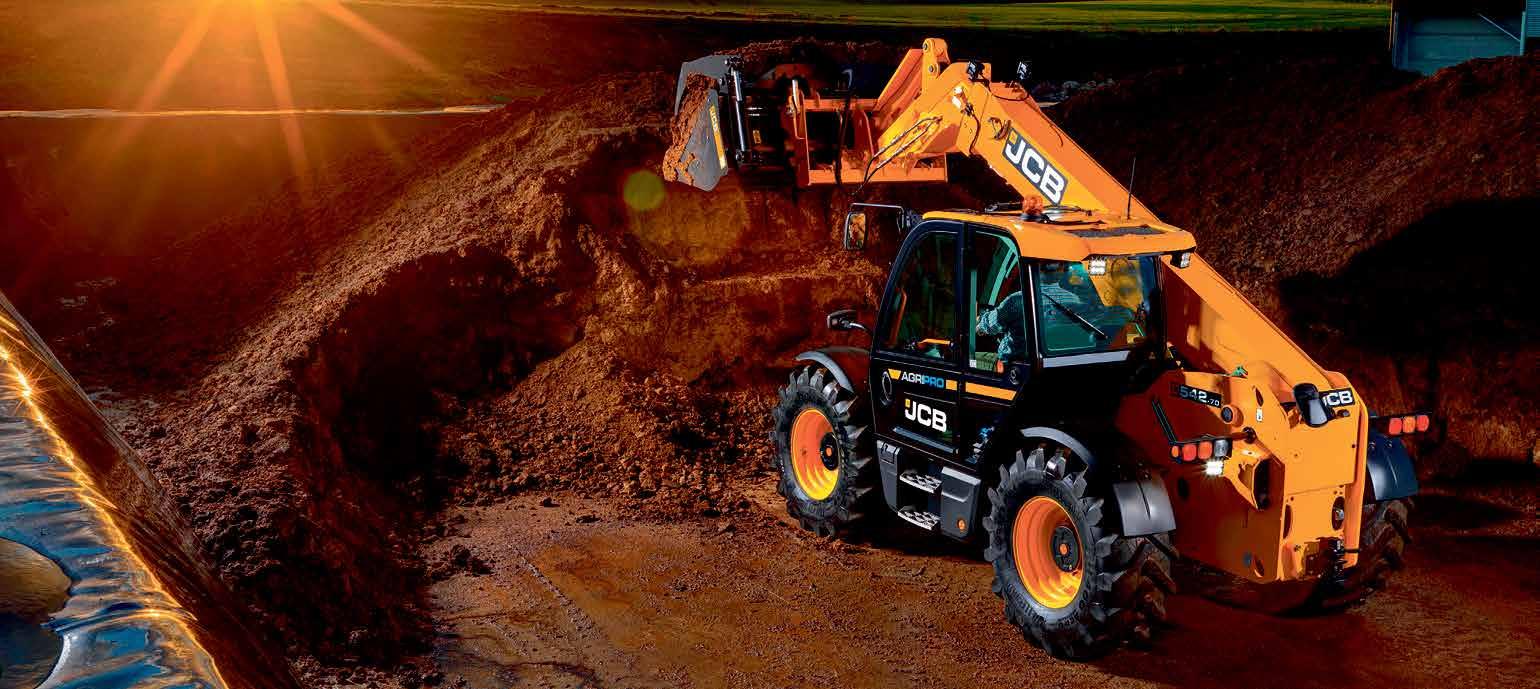
Renowned for unmatched power and versatility the extensive range of JCB telehandlers are suitable for a wide range of applications, and with an impressive lift capacity they’re ideal for loading and unloading materials, placing loads at great heights, and reaching over obstacles. With a wide range of attachments and accessories available from buckets and forks to specialised equipment for specific tasks the range is designed for optimum uptime. In the market for a new telehandler? get in touch with your local JCB CEA dealership today! *Only available to




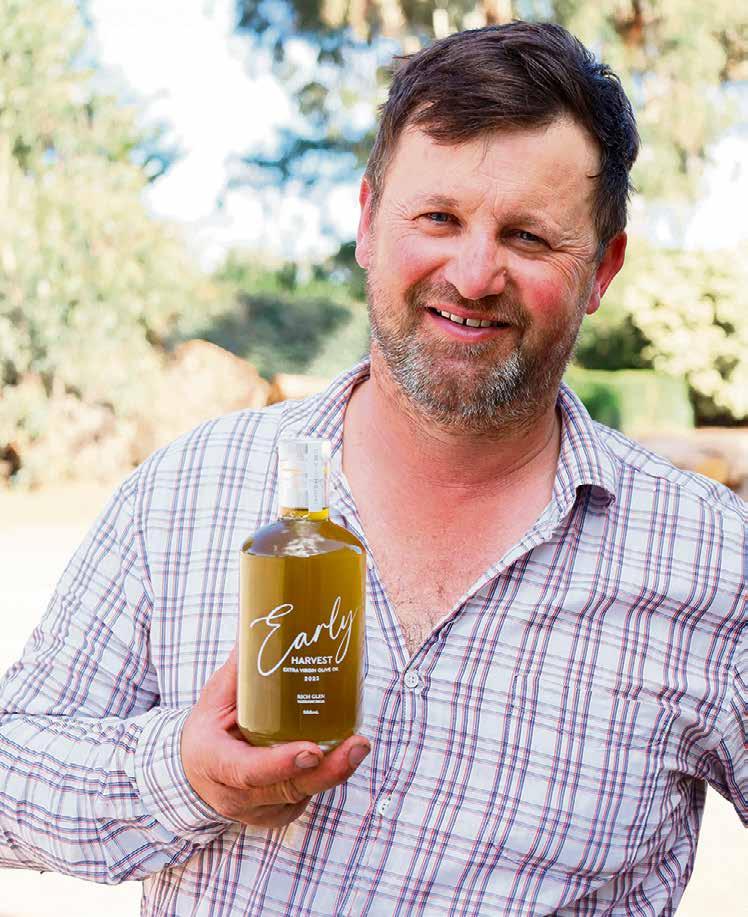
Theold adage, from little things big things grow, is the perfect way to describe the evolution of Rich Glen Olive Oil.
What began as an idea by Ros and Daimien Vodusek to sell oil and salad dressing products from a spare bedroom in the family home, has evolved into something they never saw coming retail outlets selling over 190 products made direct from the family’s olive grove.
It all began for the Vodusek family when Daimien’s parents Franc and Marija fled Slovenia to Australia in the 1960s.
Driven by a desire to succeed, the couple established a butcher shop, supermarket and abattoir in Yarrawonga over the ensuring years.
Franc and Daimien also decided to plant 36,000 olive trees in 1996 under the premise they would set the family up for life.
Varieties included frantoio, manzanillo, kalamata, Spanish queen and coratina.
Fast forward a decade and with an excavator booked in, Franc was looking to pull the grove out.
“At the time we couldn’t make any money out of olive oil. It was costing us around $5 a litre to produce and we were making $2.80 a litre, but the trees were mature and fruiting well,” Daimien said.
With a young family running around, Ros and Daimien wanted their kids to grow up on the family farm so Ros
decided it was time to start value adding, beginning with the sale of olive oil-based salad dressings.
“We moved one of the babies out of the bedroom and set up a little shop and started to sell a few things through an honesty system.
“We started with Poppy’s Favourite Dressing and funnily enough it still remains our bestseller today,” Ros said.
And the business just grew and grew.
During that time Daimien was still running the butcher shop and it wasn’t until around five years later the family realised what was once a fledging business, now had the potential to support the whole family.
The business had evolved to include a farm gate shop and café, and a long list of olive oil products including a successful skincare range.
In 2019, the family had their biggest year ever on the farm with more than 90,000 people driving through the farm gate.
The farm gate café was known for its down-to-earth hearty foods and a famous passionfruit sponge which repeatedly brought returning customers back to the farm.
“We had beautiful grounds, a farm gate café, lambs and goats running around and fruit and vegies visitors could go and pick, along with 20 staff to run the place.
“People were always really interested to see and hear about where their food came from and the farm gate was the perfect place to educate the
wider public on the importance of agriculture natural, home-grown products have always been the key to our success.”
And then COVID-19 hit.
But rather than dwell on that particular problem, the family pivoted and with warehouses full of product needing to be sold, the online store really took off.
The farm gate closed in March 2020 and the family opened the Rich Glen Provedore in Yarrawonga in September 2020.
In 2021, Rich Glen Orangerie (home, skincare, wellbeing) opened, followed by the Echuca store in November 2023.
Across the business there is now 65 employees who are involved in every stage of the process from harvesting and pressing the olives through to creation, manufacturing and distribution of product.
“The retail business has grown into a great source of pride for all of our family, costumers love the experience of stepping into our shops and we really focus on quality products and great personalised service,” Ros said.
They have plans to open more stores in other tourist towns in the future.
“It all feels like a whirlwind really, but I guess we have always stuck by our original belief to sell natural, homegrown products and we are always

Our region leads when it comes to producing and manufacturing local goods and services. Back our growers, factories and jobs by shopping locally and buying Australia made.

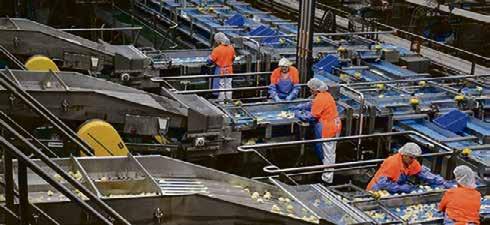

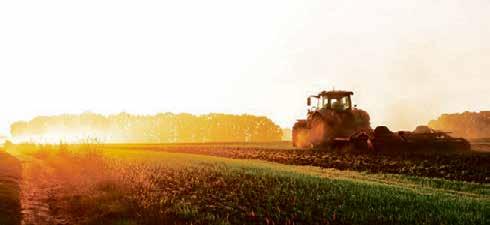
amazed by the support we get from locals who are continually bringing family and friends into our shops,” Ros said.
During the past 18 months, some of their product range has found its way into boutique Woolworths gourmet stores around the country as well as exported overseas to Singapore.
Last year olive oil production around the world was down significantly, mainly due to poor climatic conditions, Rich Glen only produced around 70,000 litres down from an average of 180,000.
“There is a huge demand for extra virgin olive oil this year and we are expecting good returns,” Ros said.
Ros said she was happy the family decided to give the farm shop a go and not pull out the olive grove.
“Rich Glen is a beautiful property and our farm and the grove now have a solid future, made even more exciting is the fact our children are all
involved in the family business,” she said.
Son Jack, 28, is stepping into the role of CEO, while Hannah, 32, is heavily involved in skincare.
Ava is in Year 12 and uses her art skills to help with a skincare range for youthful and sensitive skin, while Max,14, is a budding entrepreneur in the making, organising a chocolate range and a soon-to-be released fragrance line.
“Franc was a huge mentor to all of us, and in particular Jack, and when he has to make a big business decision he often asks himself what would Franc do?
“It is so comforting to us to know Franc and Marija got to see the success of Rich Glen and for Daimien and I to have our kids involved is a great source of joy and keeps us focused for what is next,” she said.
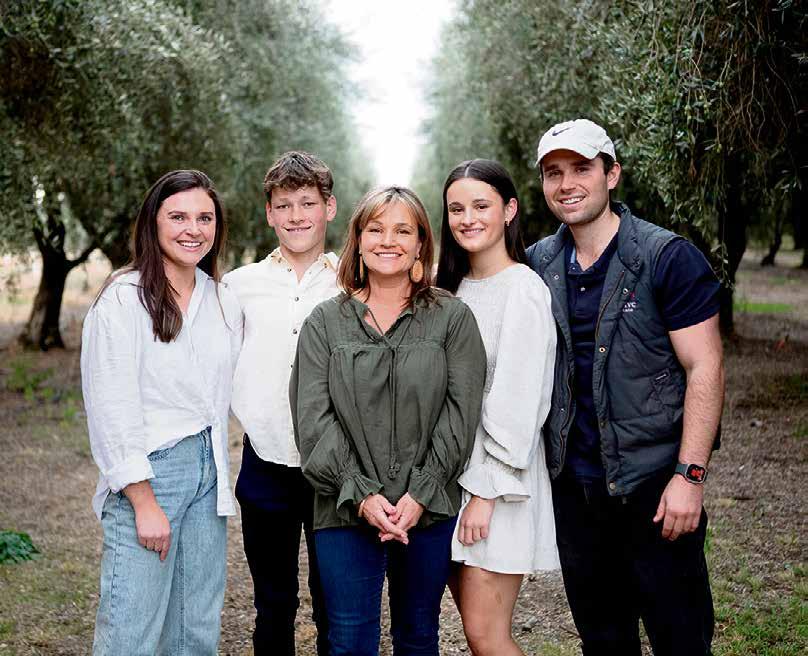
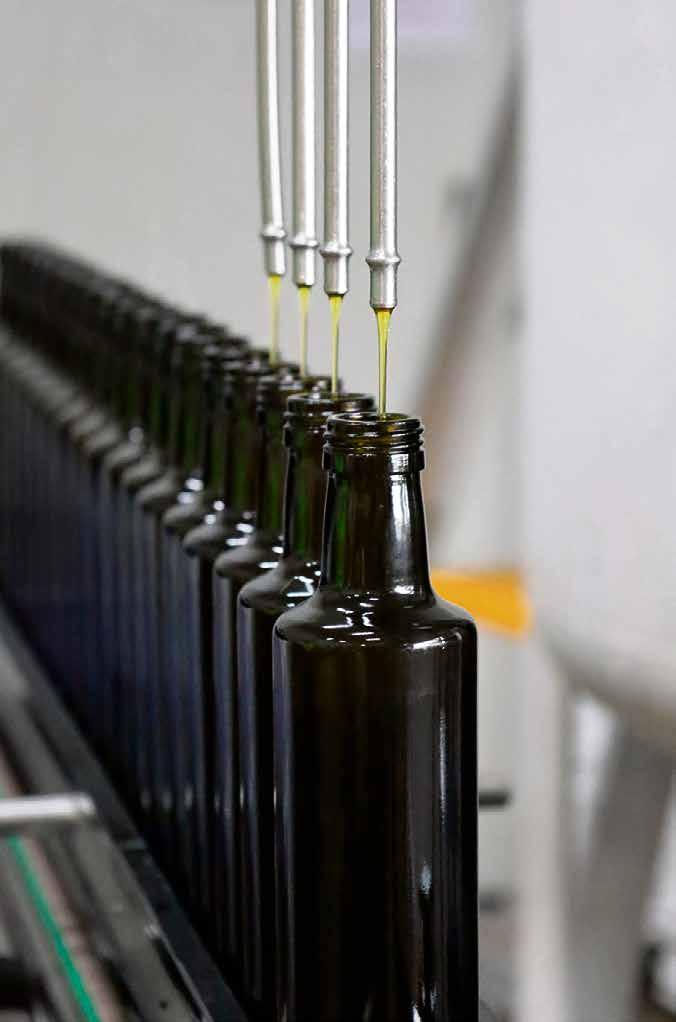
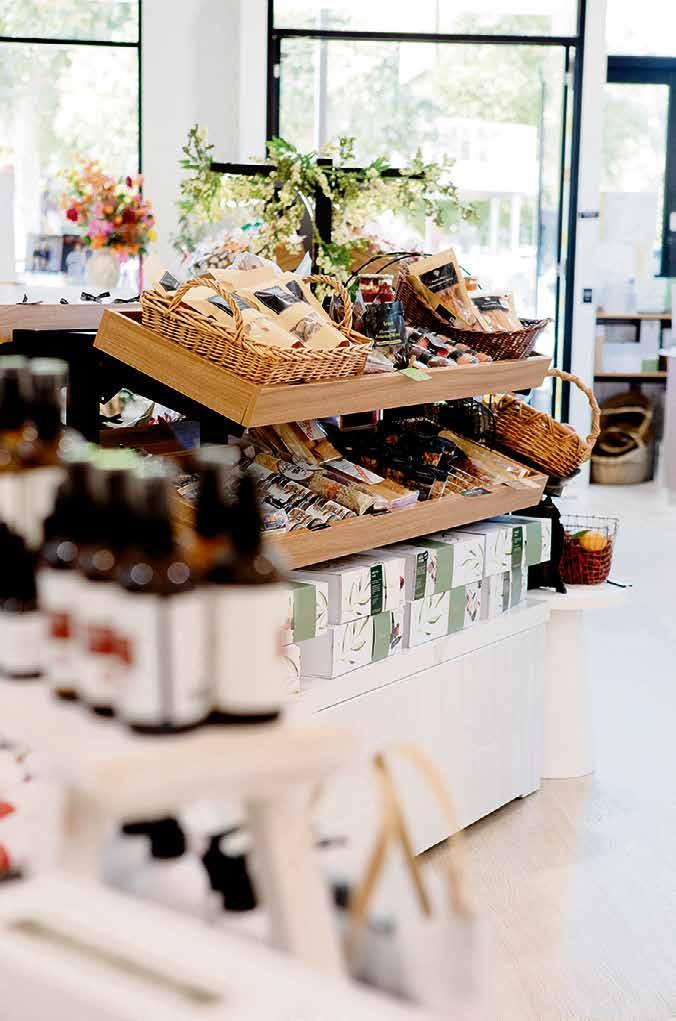



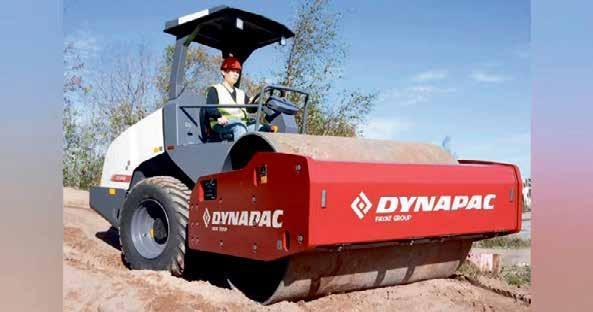
Excavators
Telehandlers Mini
Trenchers Forklifts
Scissor
Boom

Smooth
Padfoot Rollers
Plate Compactors
Foot Rammers


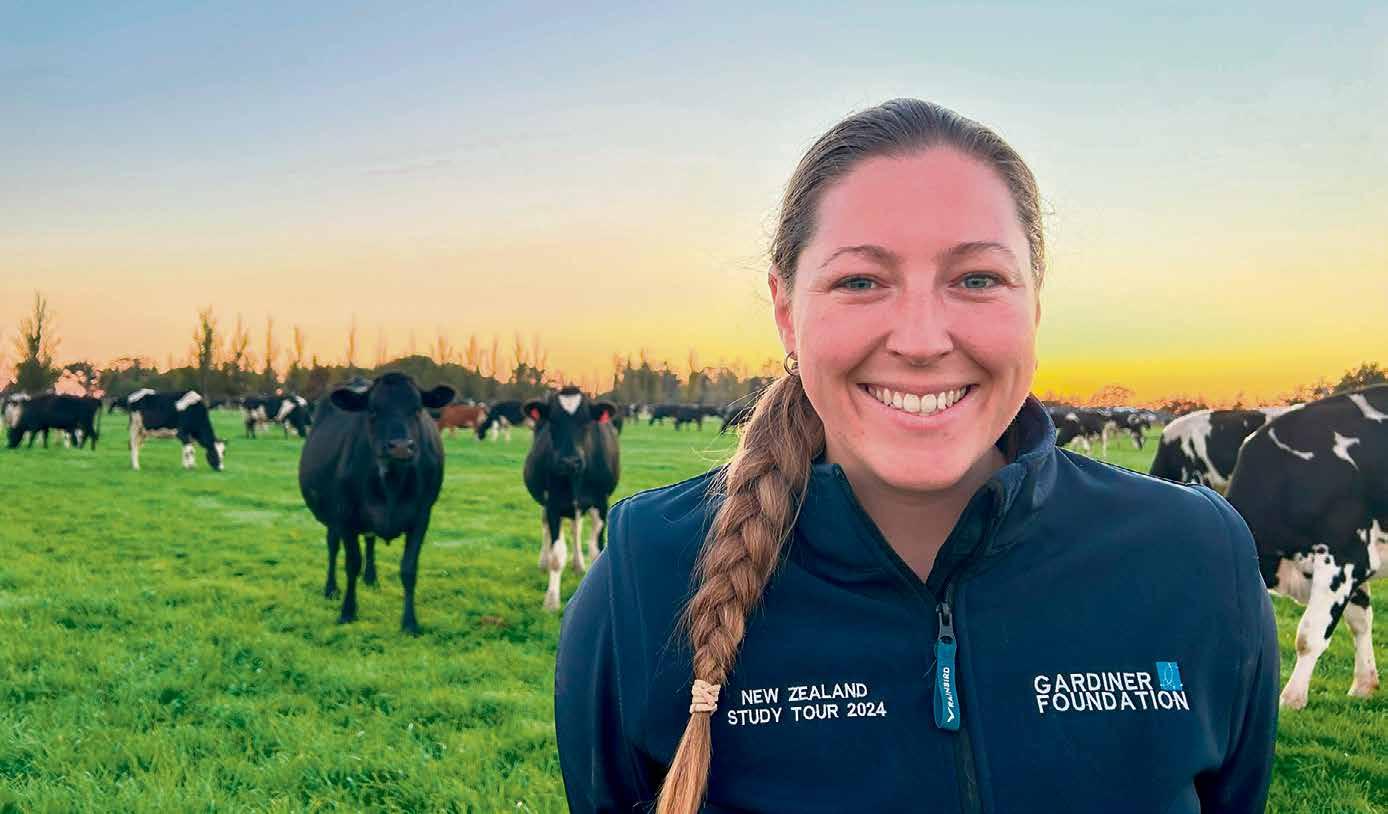
Ifyou’re wondering who put the ‘business’ in agribusiness, look no further than Merrigum local and restaurateur turned dairy farmer, Jane Snell.
“I am originally from the city; my parents are restaurateurs we love our food, wine and fine dining,” Jane said.
“I managed one of their restaurants, which meant I looked after the business, HR and training side.
“I now live with my husband, and we are sharefarming as part of a succession plan.
“I’ve found it easy to transition to sharefarming because of my business background.
“I’m certainly more interested in that part of dairy farming and currently studying an Associate Degree in Agribusiness.”
Jane has recently returned from the 2024 Gardiner Foundation New Zealand Study Tour.
Beginning in Christchurch, Jane and 11 other dairy farmers and dairy industry professionals visited New Zealand’s South Island to explore its dairy sector and develop their leadership skills.
She said one of her biggest takeaways from the tour was how much the New Zealand dairy industry relies on data and meeting targets.
“They are so into their KPIs and ROIs,” Jane said.
“If they are not meeting their targets, it signifies that they need to do something about it immediately.
“New Zealand are such an export country for dairy and their profit margins are much slimmer than in Australia.
“In Australia, we’re guaranteed a milk price, so we don’t tend to rely on the data as much. The biggest difference I noticed was they are more business-first, whereas we are more farmer-first.
“Again, this is due to their reliance on exports. For example, if Fonterra, who has 85 per cent of the milk pool, respond to a market change, then overnight the industry must follow.”
Jane said the Australian dairy industry can take a lot from this.
“Responding to the market is an enticing way to modernise farms and be more sustainable due to consumer demand,” she said.
“We will eventually go there as an industry, so it is important to get this insight and see how they are managing it across the Tasman.”
Leesa Chen, who also participated in the study tour, also noted the datadriven nature of the New Zealand dairy industry.
“It was very much regulation and export-orientated, everyone’s thinking about what their global customers are expecting and how to uphold that competitive advantage,” Leesa said.
“When we visited the demo farms and looked at research output, the focus was on how it can be applicable and how it could be commercialised. There was a data point for everything.”
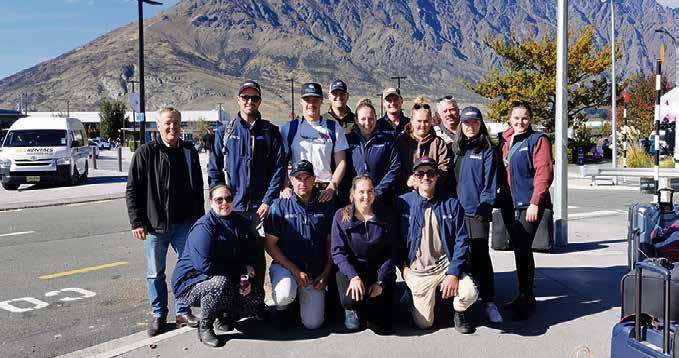
Leesa is a strategy adviser for a leading dairy processor. She has advised across the end-to-end dairy supply chain from processors through to retailers and key government departments.
Leesa said the trip reenergised her view of the industry.
“The challenge after participating in a leadership program is then thinking about how you can apply the learnings to your day to day. In terms of my role and strategy, it has given me time to reflect,” she said.
“One thing I did appreciate is how they don’t refer to their industry as ‘agriculture’ or ‘dairy’ it’s ‘food and fibre’ and people are at the heart of that.
“They are very conscious about the reputation of farming and very proactive about collaborating across sectors.”
While Jane and Leesa come from different parts of the industry, they both benefited from seeing a different side of farm management.
Leesa said it helped her better understand how farmers think, and Jane picked up a few ideas to implement on-farm.
“I’m buying a plate meter. We’re in northern Victoria, so very dependent on water and soil, and I really learned the importance of pasture management on the trip,” Jane said.
“We were originally a 100-cow farm, now we’re at over 400.
“I now need to know how much pasture there is, do I need to supplement their feed and what’s the quality of the feed.
“Seeing how they are doing this in New Zealand gave me direction on how to apply this on our farm.”
AnAustralian world-first dairy database including more than 100,000 cow records could hold the key to longer-lasting cows.
The database was developed from information derived from 30 NSW dairy farmers as part of the Dairy UP project.
Researchers used blood samples, herd recording and farm management information and provided each farmer with specific codes to record the reason a cow was culled from the herd to form the database.
Dairy UP project leader Ian Lean said this level of detail about the culling of cows holds the key to predicting and preventing diseases.
“This research is the first time we really have deep insight into the things that remove Australian dairy cows from the herd,” Dr Lean said.
“Now we have this detailed information, the focus will be on identifying things that will increase the productive life of the cows.”
Increasing the longevity of Australian dairy cows is a crucial part of the Dairy UP project.
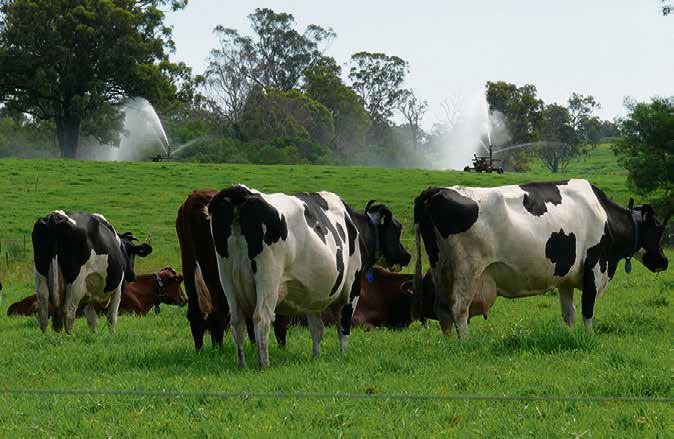
Longer-lasting cows are more profitable, have a smaller carbon footprint and open the door to new income streams for dairy farm businesses with the sale of additional younger cows, heifers or dairy beef.
Studies have demonstrated that by increasing the percentage of older cows a herd can produce 16 per cent more milk than a younger herd, while thanks to sexed semen, fixed time insemination and retaining more older cows dairy farmers have more options to explore dairy beef or heifer sales.
Keeping a productive cow in the milking herd longer also ensures that this cow provides a return on the investment in her as a young calf and heifer.
The information derived from this new database will also underpin further Dairy UP research into the critical mating weight of Holstein heifers and how this can increase a cow’s longevity.
“A longer productive cow is a winwin for everyone,” Dr Lean said.
For more information, go to: www.dairyup.com.au

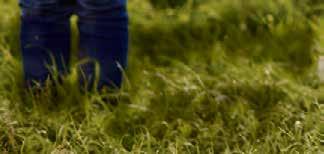






AvisitingIrish agricultural consultant says Australian dairy farmers could benefit from a government-backed dairy industry plan.
Mike Brady said a similar plan in Ireland had helped the country to add more than 50 per cent to its dairy production in less than 10 years.
“A government-backed ‘dairy industry plan’ with buy-in from all stakeholders, is a good template to follow at state or federal government level for the Australian dairy industry,” he said.
“Good ideas lead to innovation and can transform a farm business or an entire industry.”
Mike described the Irish Industry Dairy Industry Planned Expansion 2011-2020 as an example of an innovative idea that transformed the industry.
“There were regular stakeholder meetings with reporting back to government and every idea was researched,” he said.
“There were good ideas and bad ideas but the fact that the industry was joined up meant that every idea was researched and assessed as to whether it would fit the aims of industry.
“The target was to increase dairy production by 50 per cent and that was surpassed by 2018.
“Our dairy farmers have done very well and have been very prosperous in the past 10 years.”
The growth has continued into this decade. Mike cited an Irish Times article highlighting the role of innovative products and ingredients in pushing a 30 per cent rise from pre-pandemic levels in food and drink exports.
“The expansion has come from inside the farm gate,” he added.
Ireland has 18,000 dairy farmers compared to Australia’s 5213, average herd size is 84 compared to 276, while milk production is 8.8 billion litres compared to 8.2 billion in Australia.
Ireland has 1.51 million cows compared to Australia’s 1.44 million, while milk yield per cow is 5629 litres compared to Australia’s slightly higher 5665 litres. In 2022, Ireland produced a record 8,830,000 litres of milk.
Mike said Brexit had made Irish dairy stronger.
“A third of our exports go to the UK and exports have increased since Brexit when everyone predicted the opposite.”
He said Ireland had largely moved past challenges faced by Australia’s dairy industry like the demise of Murray Goulburn, labour, water and succession, but it still had issues to consider.
“The EU’s Farm to Fork strategy for an environmentally-friendly food system has led to protests and there’s Ireland’s Food Vision 2030 looking at water quality, biodiversity, greenhouse gases.
“I’m not saying these are poor ideas but I think the EU has gone too quickly with this. They came up with ideas we will need to embrace, but if you get them wrong there will be protests.”
Mike said it was “only a matter of time” before the Australian Government demanded sustainable farming.
“The advantage you have is that dairy is farther down the list for the government.
“Our problem in Ireland is that 40 per cent of greenhouse gases are from ruminant animals and dairying has recently increased so they are being looked at.”
He said the UK had struggled after its dairy advisory service had been privatised and then sold.
“To me, Great Britain was rudderless from a research point of view since that period. It made room for private consultants but you won’t know for 30 years whether you have wrecked the industry or been really good for it.
“That’s why I think it’s important to have a levy-based independent organisation that can assess ideas. I think for the industry here it is a good idea to join together to form a stakeholder group.
“From what I can see, there are lots of opportunities in Australia.”
One factor critical to the success of Irish farms is specialisation, he said.
“Some farmers here like other enterprises to try to cover a bad year, but I don’t think you can be good at all the enterprises.
“Specialise in your enterprise and become as good as you possibly can.”
In Ireland there has been a move in the north towards confinement dairying but southern areas mostly remain grass-based.

Factoring the cost of land into a dairy business isn’t needed in Ireland because so little comes up for sale.
“If you want to become a profitable dairy farmer in Ireland, your most important attribute is that you choose your parents very carefully,” he said.
“Land price is not connected to our dairy profitability.”
Sharefarming is also rare because the farms are too small to split the profit.
“Our landowners don’t want to do sharefarming — it’s too complicated,” Mike said.
“The only opportunity for non-dairy farmers to come in and have a career in the industry is because there’s no labour.
“If they work on a farm, and none of the farmer’s kids are interested in dairying, the young worker might buy some cows and lease them back to the farmer and if he’s successful he
will end up owning all the cows and leasing them to the farmer.
“But there are not a lot of full-grown partnerships.”
Crossbreeding is another system largely ignored by Irish farmers.
“It was recommended by our state advisory service but farmers resisted it and only six per cent of our cows are crossbred.
“You never know what are good ideas. They say listen to the consumer but in that case, we had to listen more to the farmer.”
Mike is an agricultural consultant and land agent. He started his career as a dairy husbandry adviser with the UK Ministry of Agriculture, Fisheries and Food, later returning to Ireland in 1989 to work in the private sector. In 1995, he founded Brady Group, becoming a leading figure in agricultural advisory services.



DROP DECK SEMI-TRAILER
Featuring Freighter’s extra strong gooseneck, the Drop Deck Semi can be specifically engineered to optimise pallet capacity and spacing on both upper and lower decks, depending on your freight requirements. Pull out ramps are also available to allow machinery to be driven between the lower and upper decks. While hydraulic ramps at the rear are a popular option, together with a beaver-tail rear end.

The versatile Freighter Flat Top Semi-Trailer may be purchased as a single trailer, lead, tag, B-double or road train configuration. Available in a range of sizes, including either a 22 pallet or 24 pallet specification.
Featuring Freighter’s extra strong gooseneck, the Drop Deck Semi can be specifically engineered to optimise pallet capacity and spacing on both upper and lower decks, depending on your freight requirements. Pull out ramps are also available to allow machinery to be driven between the lower and upper decks. While hydraulic ramps at the rear are a popular option, together with a beaver-tail rear end.



HUNTER ALUMINIUM
The Hamelex White Hunter Aluminium B-Double tipper combinations are ideal for operations where quick turnaround is a must. The ability to unload both trailers without uncoupling, either in a jackknife or straight-line position, makes it the perfect solution for dual purpose use. There’s no need to break up the combination and roll the body or slide the suspension on the lead trailer.
The versatile Freighter Flat Top Semi-Trailer may be single trailer, lead, tag, B-double or road train configuration. a range of sizes, including either a 22 pallet or 24 pallet
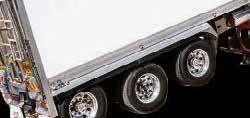





Whether you’re hauling grain, rocks, sand, gravel or waste, all Lusty EMS semi tippers are built to withstand the harshest conditions, only the very best materials and know how are used to create what is regarded as one of the finest quality and toughest semi trailers around.
The Hamelex White Hunter Aluminium B-Double tipper combinations are ideal for operations where quick turnaround is a must. The ability to unload both trailers without uncoupling, either in a jackknife or straight-line position, makes it the perfect solution for dual purpose use. There’s no need to break up the combination and roll the body or slide the suspension on the lead trailer.
Whether you’re hauling grain, rocks, sand, gravel or all Lusty EMS semi tippers are built to withstand the only the very best materials and know how are used regarded as one of the finest quality and toughest

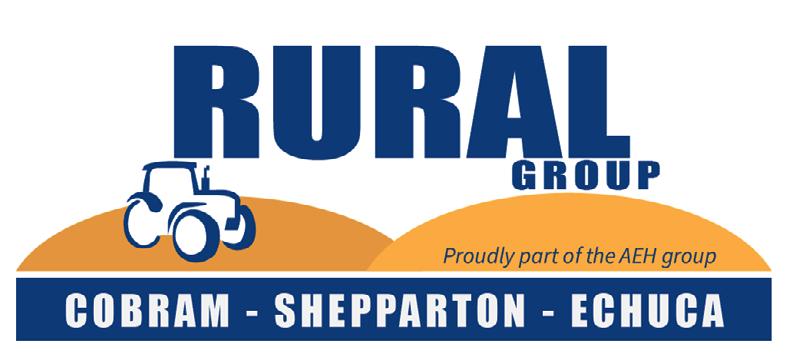




















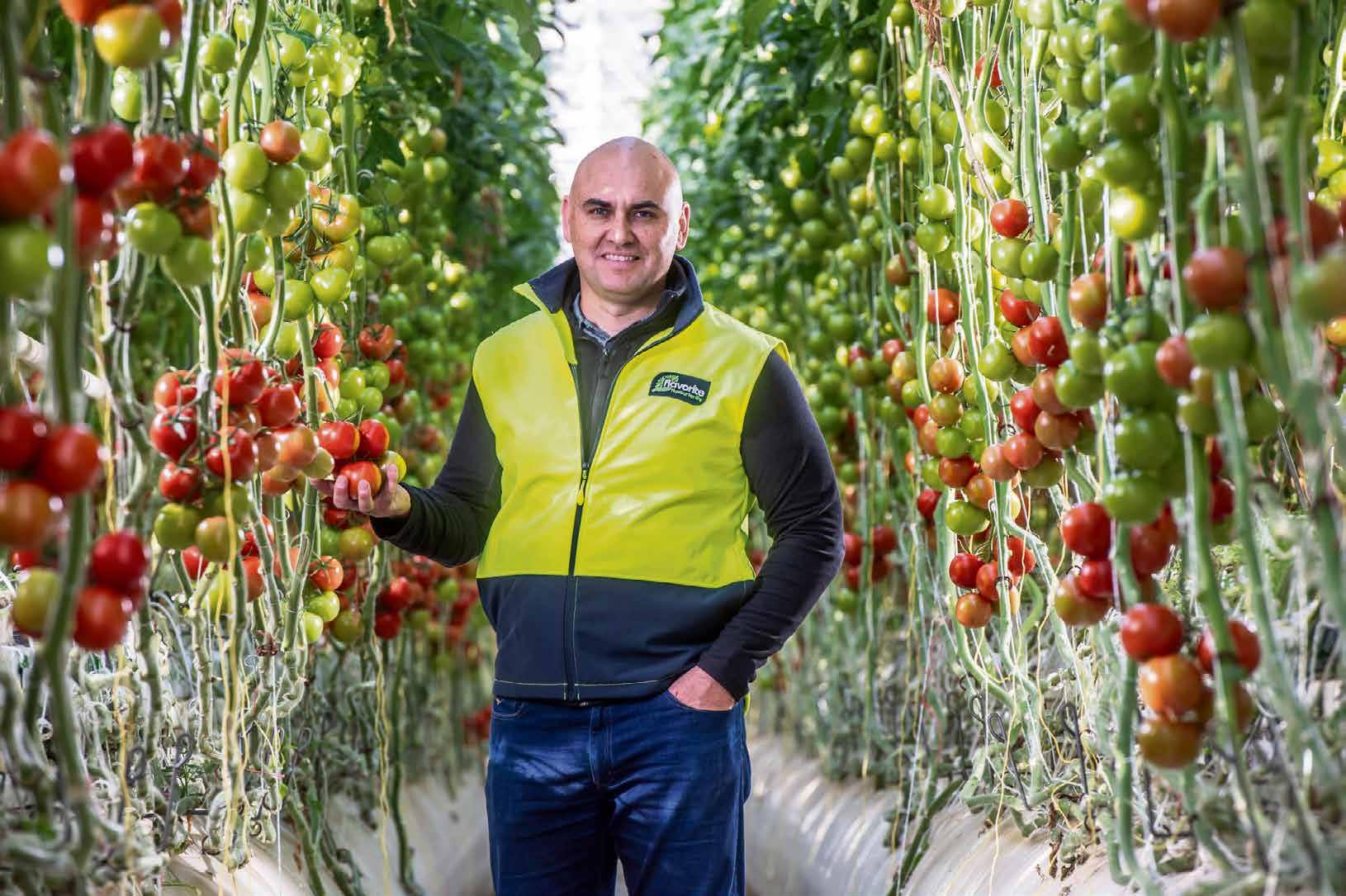
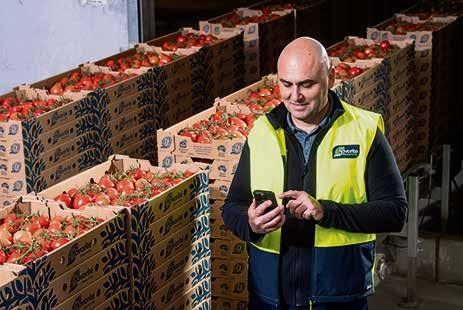
Refresh:Food is a digital marketplace designed to connect growers with excess fruit and vegetables to new networks of potential buyers.
The B2B marketplace is accessible via the Refresh:Food smartphone app, and has been designed to make the exchange of produce as simple and transparent as possible.
It was launched with an ambition to help reduce food waste in the supply chain by creating an additional channel for farmers to achieve a commercial return for more of their produce.
Refresh: Food is a profit-forpurpose company, meaning any profit generated is invested into initiatives which help reduce food waste or hunger, such as supporting the work
of charities like Foodbank, OzHarvest and Fareshare.
The app allows farmers to list excess produce which may be a result of bumper crops, weather damage or imperfections on the digital marketplace.
Produce buyers such as fruit and vegetable processors, packaged food manufacturers, small grocers, meal kit and produce box companies, hospitality and food service providers can use the app to find savings on produce that may have minor imperfections, take advantage of seasonal abundance and access new supply streams when their regular supply is disrupted.
Growers set the price, upload a photo of the produce and document key details including harvest date, best before date, whether it is washed or
any stickers have been applied, quality notes like damage and defects, and their relevant certifications.
When a buyer is ready to make a purchase, the payment is securely managed through the app, with statements and invoices automatically generated.
Buyers have the option to organise their own transport to collect and deliver their produce, request a quote for Refresh:Food to handle logistics or have the produce delivered to a central ‘hub’ location for their collection.
“Our number one motivation for starting Refresh:Food is to reduce on-farm food waste by giving growers another avenue to sell excess produce it’s sustainability with commercial purpose,” Refresh:Food managing director Chris Cramond said.
“We want to help broaden growers’ network of potential buyers to tap into demand that they wouldn’t otherwise have visibility of.
“Farmers obviously never want to see the food they grow ploughed back into the ground, and Refresh:Food is about creating another channel that they can turn to at a moment’s notice to find the right buyers for different grades of produce.”
Flavorite is a family-run Victorian fruit and vegetable producer, which was part of the initial test group for Refresh:Food.

It grows tomatoes, cucumbers, capsicums, eggplants and blueberries almost exclusively in glasshouses across four regional locations at Tatura, Katunga, Mansfield and Warragul.
Less than two per cent of Flavorite’s produce goes to waste, however it is continuing to work towards zero food waste.
Flavorite has sold truss tomatoes, saucing tomatoes, cherry tomatoes and eggplant using the app.
For Flavorite, not only has the marketplace helped them move more surplus volume and generate revenue from it, it has also given them greater control over the volumes flowing through traditional market channels to avoid oversupply that could be detrimental to their return.
“We already have really established sales channels we supply to supermarkets and greengrocers around Australia and to the Melbourne wholesale markets,” Flavorite chief marketing officer Sam Kisvarda said.
“However, when it comes to cutting our food waste, every little bit helps, and Refresh:Food has allowed us to diversify our markets for lower-grade produce,” he said.
“The app is very user-friendly and the Refresh:Food team has welcomed feedback to continue improving it and

Listings on the Refresh:Food app.
help form a closer connection between buyers and sellers.
“It’s given Flavorite the ability to connect with buyers we mightn’t have considered previously and improved the value of what would have otherwise been unsought produce.”
An additional feature of the app is the ability to donate produce to a hunger relief charity, should there be no relevant buyers for it at the time.
To save produce going to waste, growers can list it on the app as a donation so that charities only need to cover the cost of transportation.
OzHarvest is one of the charities testing the app to help boost food rescue volume in Sydney, Brisbane and Melbourne.
“We’ve been able to test the Refresh:Food platform by purchasing pallets of good quality vegetables to help meet the current increase in demand for food,” OzHarvest head of operations Tracy Bialek said.
“Innovation is a crucial part of addressing two national issues of food waste and food insecurity in Australia, and OzHarvest is always looking for new ways to get good food to those who need it most.”















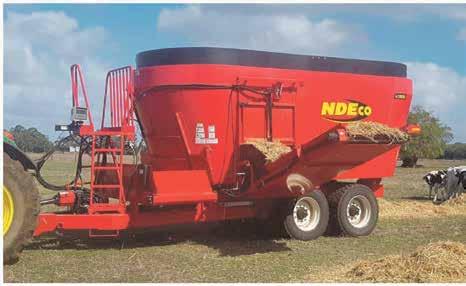
•
•

Australia should have its first hydrogen tractor by the middle of the year as part of a $50 million investment in sustainable agriculture research.
The tractor, which is being procured from Europe, will be tested
in an Australian landscape under a partnership between Charles Sturt University and industry.
“We’re bringing it in as a research tractor because our first goal is to demonstrate to the industry that hydrogen tractors can deliver we
can also validate their level of performance,” Nick Pagett from Charles Sturt University said.
The dual-fuel tractor will need to meet various regulatory requirements while research will be conducted on hydrogen fuel supply, given the


•
•
•
•
•
•
•
•
•
•
•
•
• Full length chassis 12mt Unit $18,110.00 Inc GST


limited number of hydrogen fuel stations in Australia.
“We need to understand how not only will a tractor operate on hydrogen but also what’s the supply stream that’s required,” Nick said.
The multi-million dollar investment in sustainable agriculture will also examine how hydrogen can be produced in regional areas.
With no hydrogen refuelling stations in regional Australia, Nick said the university would need to examine whether it was possible to scale up hydrogen production on farms.
The investment would also test other new technologies such as precision spraying and biogas conversion.
The university said it hoped to support farmers to improve the health of their soil and reduce on-farm greenhouse gas emissions by demonstrating the relevant technology could help.
“We will also look into hydrogendriven generators and fuel cells that can support irrigation systems and replace electricity supply, and how we can use agricultural products as feed ‘stock’ for hydrogen production, such as cereal stubble, rice hulls and the waste from feedlots,” Nick said.
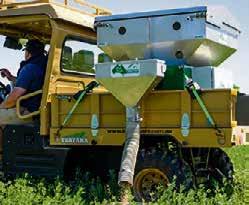
New Revolutionary ATV Horse Feeder Features:
• Up to 75% savings in Labor.
• No feed wastage.
• No manual handling.
• Create up to 4 feed categories and feedout amounts.
• Dual Hopper 2x 200lt Hoppers.
• Slide and tilt lid for easy filling.
• Controls at your fingertips and no need to leave the driver’s seat.
• Strong & Robust design.
• Australian Made. www.feedtechhoresefeeders.com
“Then we need to demonstrate how ag can adopt and use the technology. Currently the new and emerging renewables are city-centric and mainstream.” Feedtech 1.5T Trail Feeder
• 1.5T Hopper.
• Slide and tilt lid for easy filling.
• Solid and robust design.
• Leaf Spring axles.

• Open slide from either side of vehicle.
• Keyfob option available for remote opening/closing.
• Rear taillights fitted.
• Mud flaps fitted. • Locally made.
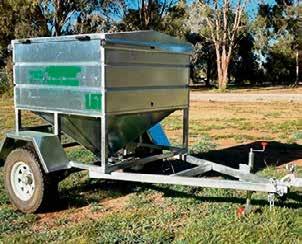
AVictorian agtech company committed to protecting farming families and their assets has been recognised with an award from Worksafe Victoria.
Developed by Mansfield brothers and farmers James and Paul Diamond, AirAgri is the winner of the Commitment to Workplace Health and Safety on a Farm category.
AirAgri’s safety tracking and alert solution provides a series of automated safety notifications using proprietary rules, location, emergency and medical information, along with access to inventory and safe handling working documents to act like a digital filing cabinet on a farmer’s phone.
AirAgri not only works in the bush but is easy to use, allowing farmers to get on with their job while having an added layer of confidence.
The business also provides property-specific weather forecasting enabling farmers to access accurate forecasts for their individual rural assets.
“At AirAgri we have always believed the safety and wellbeing of farmers is paramount,” AirAgri co-founder James Diamond said.
“Our journey to this point has been driven by a passion for leveraging technology to address the unique challenges faced by the agricultural industry.
“From our advanced lone worker safety system to our propertyspecific weather forecasting and mental health monitoring
solutions, every innovation is designed with the welfare of the agricultural community in mind.”
James paid tribute to the hard work and dedication of the AirAgri team, partners and the farming community embracing the technology.
“We remain committed to pushing the boundaries of what is possible in agricultural safety and productivity,” he said.
“We believe that together we can create a future where every farmer and agricultural worker operates in a safe, supported and sustainable environment.
“Our key focus is farm safety there is no better reason to get out of bed than to try and make sure every Aussie farmer comes home at the end of every day.”




















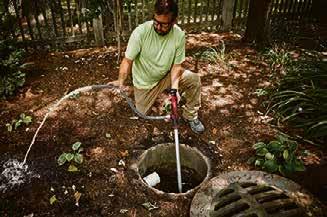


The way the changing climate will impact different farming regions of Australia has been outlined in a new report from Rural Bank.
The agricultural bank has released its first climate report for primary producers, providing an in-depth look
at what climatic changes farmers can expect in their region.
The report looks at the projected impact of climate change state by state as well as in reference to average global temperatures and its impact on agriculture.
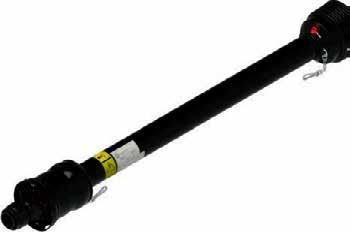
“When we look at Queensland, we’re talking about higher rainfall events,



whereas in Victoria, we’re talking about the state becoming hotter and drier from the north towards the south,” Rural Bank’s Andrew Smith said.
In Queensland the report found warmer temperatures are already reducing the lifecycle of wheat and will cause flowering to occur two to three weeks earlier by 2030.
The report laid out how heat stress days, which are those days over 35°C, will increase in Brisbane by 2050 from about two days a year to eight.
Predictions for Tasmania expect the temperature rise to be less than for most of the rest of Australia.
It also looked at the projected impact of climate change by commodity and industry.
Climate and carbon specialist David Hine said it was important to understand how the changing climate was impacting on nature, including the flowering time of different species.
“It has been impacting on productivity, some technological advances have helped mitigate that,” he said.
The report also calls for more focused research to examine the roles agriculture and land management can play in emission reduction targets.
Mr Smith said it was important to examine the impact of climate change at a farm gate level.
“I think the take-out for us was very much around understanding your own landscape, and if adaptation is required to transition through that,” Mr Smith said.
“It may mean some areas become tougher from a profitability perspective.“
Read the full report at: www.ruralbank.com.au/knowledgeand-insights/publications/ climate-report/













Australia’snational science agency, CSIRO, is calling on rural and regional Australians to join in the longest-running citizen science survey of rabbit diseases in the world, to help keep the invasive pest in check.
Feral rabbits are one of the most destructive invasive pest species in Australia.
They compete with native animals, cause plant biodiversity loss, reduce crop yields and cost the agricultural industry around $239 million per year.
Rabbit haemorrhagic disease virus, also known as rabbit calicivirus or lagovirus, is used as a biocontrol agent to manage rabbit populations at the landscape scale in Australia.
It only affects rabbits and hares, and vaccination is available for domestic (pet) rabbits.
New research shows the success of the nine-year disease monitoring program, which relies on members of the public taking tissue samples from dead rabbits found in their area using free sample kits provided by CSIRO.
Samples can be taken from deceased wild or domestic rabbits.
CSIRO scientist Maria Jenckel said the samples provided since 2015 have helped paint a better picture of the viruses circulating in wild rabbit populations.
“We encourage community members from across Australia, particularly in rural and regional areas, to contribute samples for testing so we
can get the widest possible coverage across Australia,” Dr Jenckel said.
“Citizen science has expanded rabbit virus tracking from fewer than 30 samples tested annually to an average of 345 samples tested annually from 2015.
“The program allows researchers to track the prevalence of rabbit virus RHDV, with samples arriving every week.”
CSIRO virologist Nias Peng said the huge increase in citizen collected samples had allowed scientists to work on a much wider geographic spread as researchers don’t need to collect the specimens directly.
“A citizen science project such as this contributes directly to research on rabbit biocontrol, which has long-term benefits for Australia’s biosecurity, native species conservation and ecosystem health,” Dr Peng said.
“It is therefore critical to sustain such programs for the long-term to monitor for emergence of new RHDV incursions and/or recombinant variants which may affect wild and domestic rabbit populations.”
Funding for this program was originally provided by the Federal Government through the Invasive Animals CRC, the Centre for Invasive Species Solutions and CSIRO.
Funding to continue the program is currently being provided by the Federal Department of Agriculture, Fisheries and Forestry.
To request a free test kit, email the research team at rabbitcalicivirus@ csiro.au with your postal address.
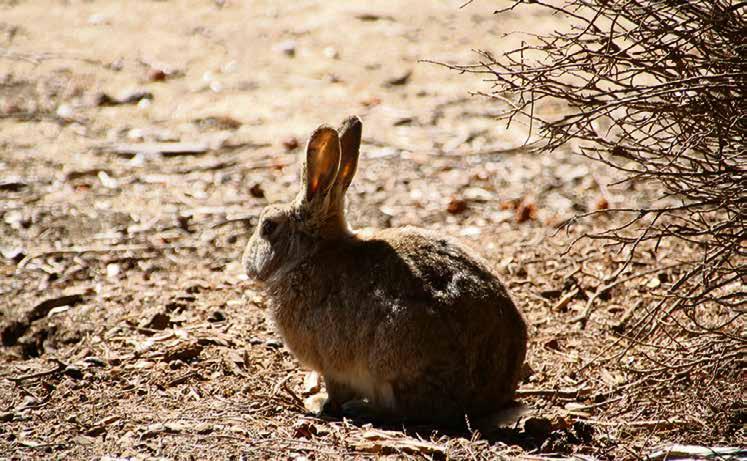
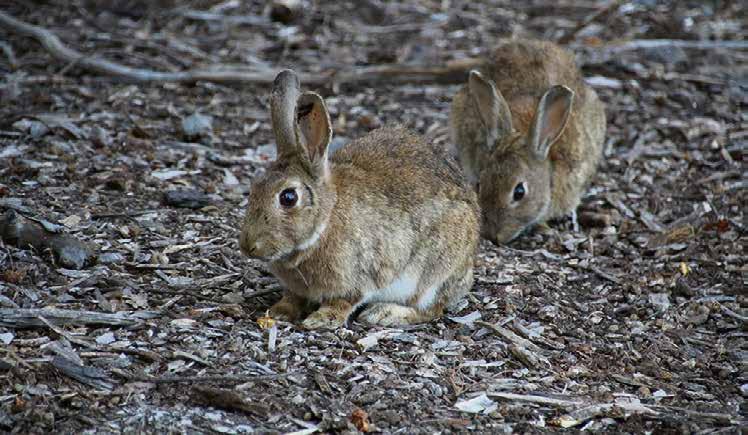
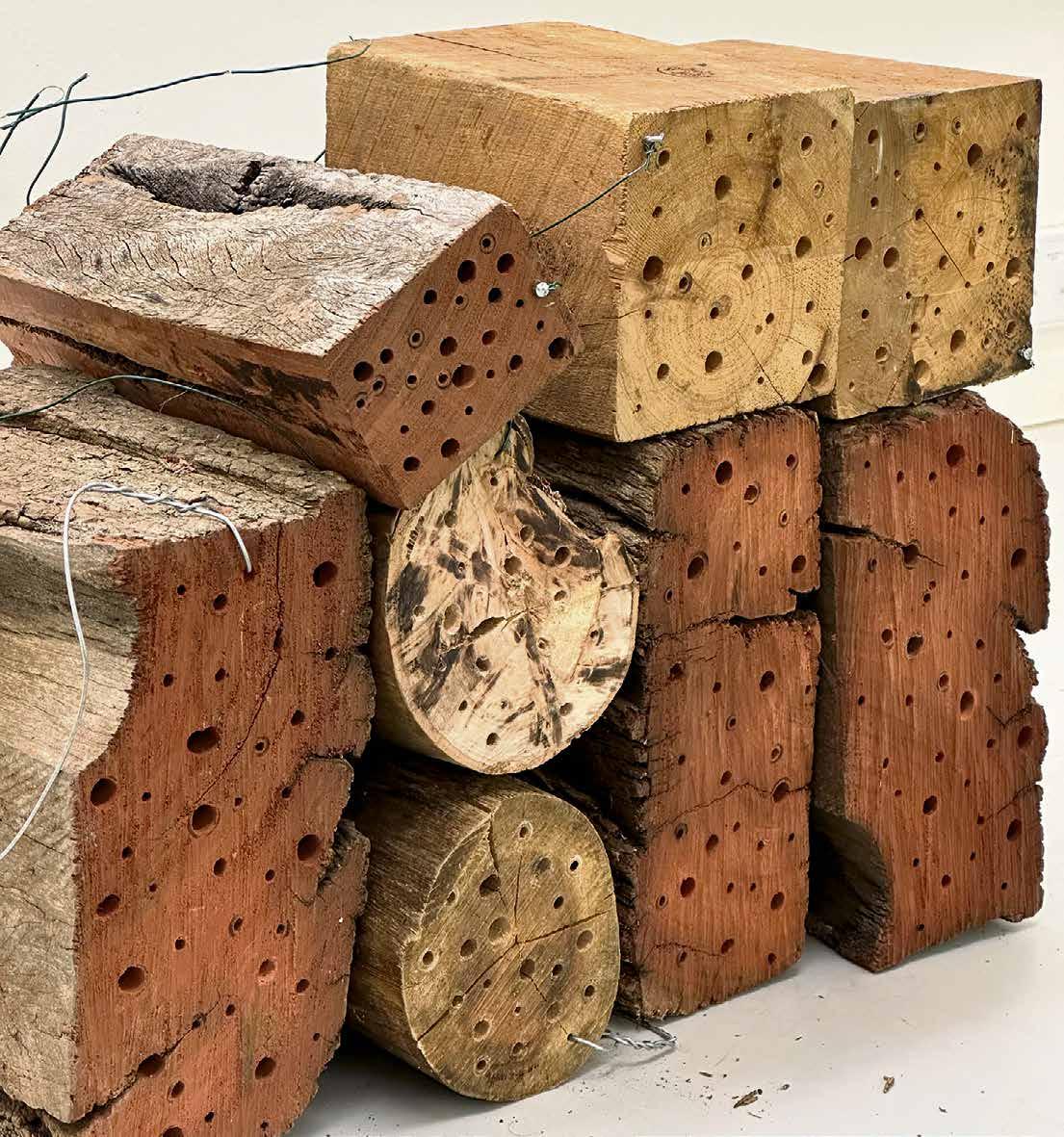
the
Hotels don’t come to mind when discussing bees. Also, rarely known is much about Australia’s native bees.
A Melbourne University Masters student from Numurkah is determined to change all that as he investigates the impact of ecological change on native bee populations.
Clancy Lester, 23, is a buzzing encyclopedia of native bees and said
the diversity of the different species throughout Victoria was immense.
“There are hundreds of different species of native bee in Victoria alone,” Clancy said.
“You have all those species which have adapted to the Riverina and those in foothills outside Wangaratta and then Mallee species toward Bendigo and in the middle, you have the central north where those groups meet.”

“The average person, when they think about bees, they think about European honey bees; my hotels don’t cater for honey bees.
“They also cater only to solitary bees which doesn’t matter down here as the only social native bees (living in hives) are up in the tropics anyway.”
Clancy’s approach to addressing the role of native bees in sustainability under a changing climate is two-pronged.
For his master’s thesis now in its final year he is working with the Yolngu First Nations people in Arnhem Land to investigate the plant-pollinator network in the area involving species of the Austroplebeia and Tetragonular genera of bee.
Clancy is investigating the impact of climate change by studying the phenology (changes to a lifecycle due to seasonal variations) of local flowering plants.
Australia has more than 2000 species of native bees with nearly all species living solitarily.
“Only a handful of species are social (in hives) and they tend to be up north in the tropics,” Clancy said.
Clancy is passionate about biodiversity.
“I have chosen to go with the hotels to educate the public about biodiversity,” he said.
“Locals are reporting that they are not harvesting enough honey compared to in the past because flowering times on some species have changed,” Clancy said.
DNA ‘metabarcoding’ of the pollen allows scientists to know what plants the bees are using, which then helps assess phenological changes in the plant resources.
“We want to determine the plant and pollinator networks in the area and ask are they being affected by climate change?”
Clancy’s father George with a hotel he has installed at his workplace. “Clancy has shown some real creativity with this project and building the hotels,” George said.Clancy is in the final year of his Master’s project and at age 23, he is destined for an academic career that will follow his passion.
Key to his success is being a recipient of the Wattle Fellowship which is designed to bring together a collective of young people
The Wattle Fellowship is the university’s co-curricula program for students to foster leadership on global sustainability, focusing on multidisciplinary approaches, leadership and practical skills development.
The year-long program supports students to create a positive impact on sustainability and develop within a community of change-makers.
“After some training and networking, students come up with projects for problems that they are passionate about,” Clancy said.
Hotels can be made easily at home by drilling holes into pieces of untreated timber, or the stalks of certain garden plants.
Holes are drilled to mimic hollows which naturally occur due to boring grubs.
Suitable plants include sunflower stems, bambo and even mint.
“You need to use extra long drill bits about 100 to 150 mm because the females will lay eggs first and then the males come toward the end of the tunnel,” Clancy said.
“Use a range of widths too so you can attract a variety of species.
Bee hotels for sale at major hardware stores are not suitable due to the holes not being the right size and the wood being fumigated if imported.
The hotels then need to be hung horizontally where there is ‘a good amount’ of sun, with the holes facing north-east.
“When they go in they create different cells and then cap them off,”
Clancy said.
“And they will use different materials; for example, leaf bees, resin bees and wasp-mimic bees make spider web looking entrances.
“Masked bees are smaller and cap with material which looks like glass.”
And the results?
“People will know when they have residents.”
Clancy praised the value of the Wattle Fellowship in helping launch his research.
“When I was new to the world of academia, the fellowship definitely helped me with networking, getting used to being in uncomfortable environments and contacting people with experience in my field,” he said.
“It was helpful for losing any fear of rejection.”
More information can be found on Clancy’s Instagram: Beesandblossoms.oz



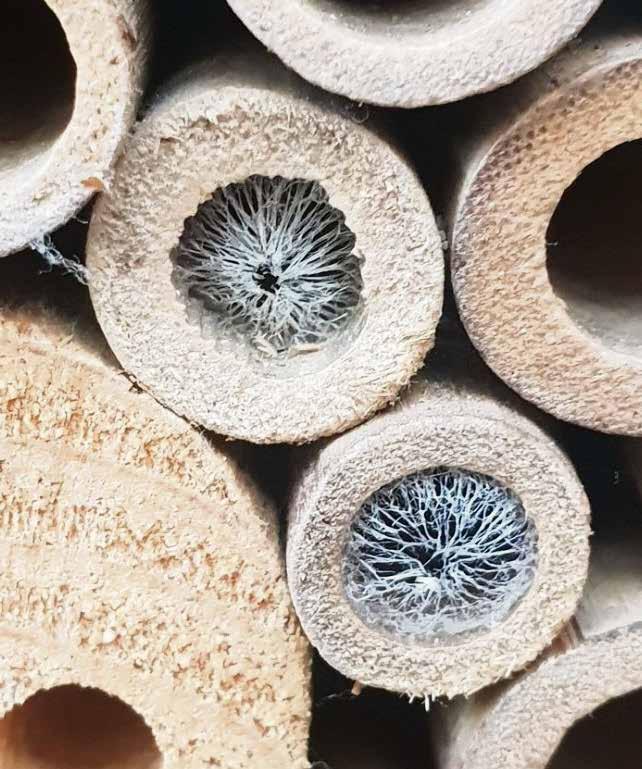 The Wattle Fellowship is a year-long program which supports students who want to make a positive impact on sustainability within a community of change-makers.
A wasp-mimic bee checking out of her hotel room.
The range of native bees means there is a large variety of nest ‘caps’ to be discovered.
The Wattle Fellowship is a year-long program which supports students who want to make a positive impact on sustainability within a community of change-makers.
A wasp-mimic bee checking out of her hotel room.
The range of native bees means there is a large variety of nest ‘caps’ to be discovered.
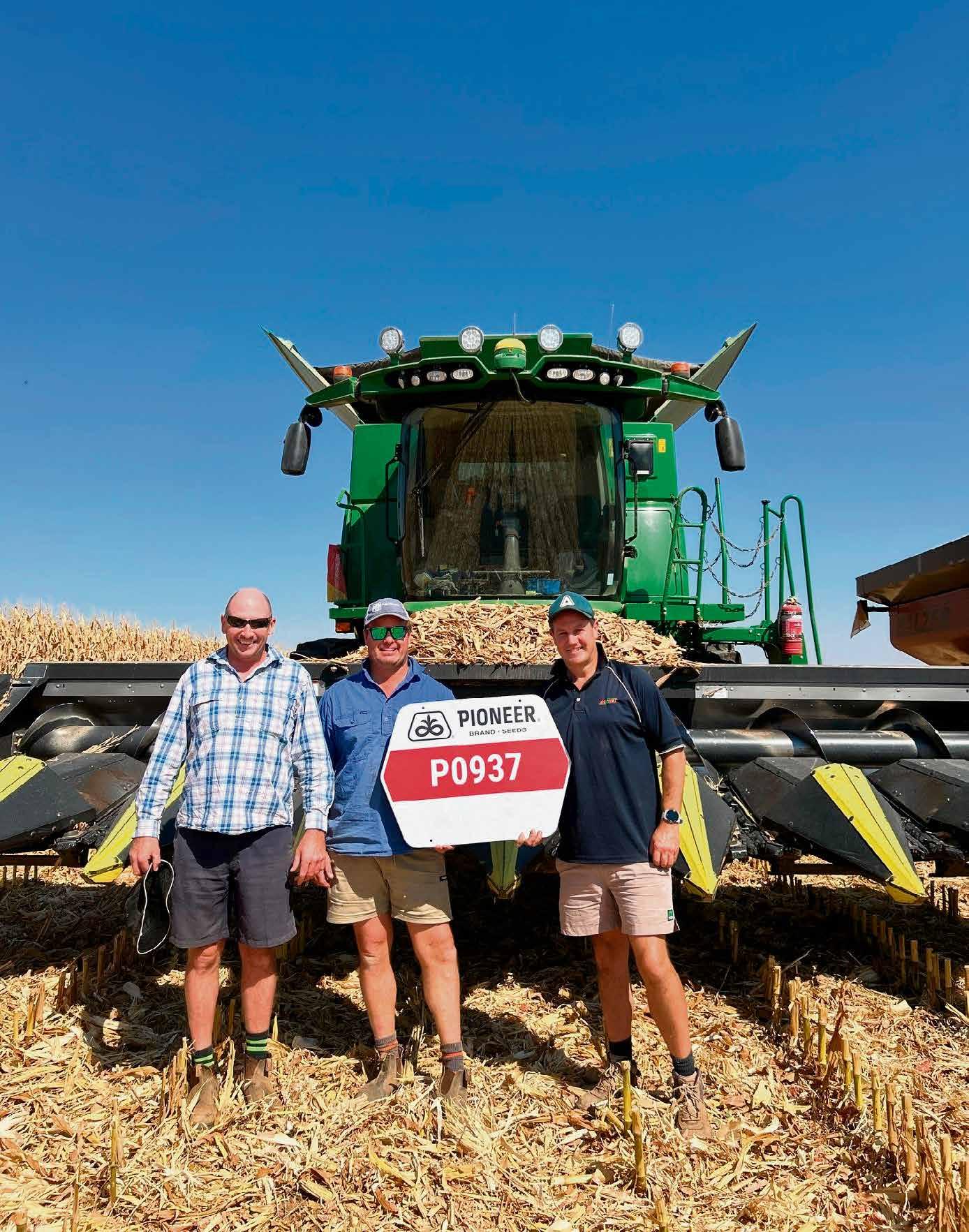
Rapid advances in plant breeding, plant protection and better management have resulted in significant increases in maize yields, with northern Victoria and southern NSW featuring in record crops.
A maize crop grown on the property of Pate Agricultural at Tocumwal and harvested in March, has achieved an Australian record-breaking yield of 23.2 tonnes/ha.
A good season and some crop management strategies are being credited for the record crop, the winner of this year’s annual Australian Maize Association competition.
The 2021 competition was won by Rex James Transport at Nathalia, where Nick James grew a crop of Pioneer Hybrid PO725, yield tested at 19.7 tonnes/ha.
Owner of the Tocumwal crop, Nathan Pate, said while the record yield was from just a measured section of the crop, he was even happier that the average across the whole crop was also very high.
His regular cropping program includes wheat, canola, corn and rice. He’s been growing maize for about nine years.
The winning crop was planted on October 18, 2023 and harvested on March 28 this year.
The previous highest yielding crop was in 2022 and was 21.47 tonne/ha.
It was grown using a pivoting lateral with 6.5 Ml/ha of irrigation water supplied throughout the summer.
This resulted in a water use efficiency of 2.74 tonnes/Ml when rainfall was factored in.
AGnVET crop adviser James Murray, who provided agronomic advice, said the fertility of the paddock was very good with a deep nitrogen soil test confirming 212 kg/ha of soil nitrogen (0–60 cm soil).
A recent soil test measured a satisfactory soil pH of 5.7 CaCl 2, along with healthy 60 mg/kg phosphorus (Colwell) in 0–20 cm of topsoil.
The field has had a history of robust inputs, along with soil amendments such as lime, gypsum and chicken litter.
The crop was sown following a 16-month fallow.
The fertility of the paddock was very good with a deep nitrogen soil test confirming 212 kilograms per hectare of soil nitrogen (0–60 cm soil).
The previous corn residue was maintained from the 2021–22 summer.
Nathan has observed this to be a critical step to improving soil water infiltration after recent study tours in Texas established that groundcover is king.
Strip tilling started on September 28, 2023, in which 70 kg/ha of phosphorus along with 148 kg/ha of nitrogen was banded at a depth of around 200 mm.
The Pioneer Hybrid P0937 was sown at a rate of 96,000 seeds/ha on 30 inch (76.2 cm) spacings and emerged uniformly.
The actual field population was measured using precision planting pogo device and 94,000 plants/square metre was achieved, along with a singulation of 97 per cent.
A further 125 kg/ha of nitrogen and 40 kg/ha of sulphur was broadcast on October 2023 ahead of forecast rain (urea/SOA blend). On October 4, 2023, 80 mm of rainfall fell to fully charge the soil profile with moisture.
It took a further two weeks for the field to get to the correct soil temperature for planting to occur.
P0937, an elite 109 CRM feed grain maize hybrid, was planted on October 18, 2023, along with 40 litres/ha of Corn Popup starter fertiliser in-row.
An additional application of urea (69 kg/ha of nitrogen) was broadcast on November 23, 2023, ahead of rainfall to target the V5 growth stage of the crop. This appears to be a key timing for influencing cob girth.
The willingness of Nathan Pate’s manager, Daniel Phelan, to go the extra mile with this crop was evident when he co -ordinated a final nitrogen application on New Year’s Day when many others would have been down the river fishing or waterskiing.
A final nitrogen application of 46 kg/ ha was broadcast by aerial application on January 1, 2024.
A total of 388 kg/ha of nitrogen was applied for the season, along with 70 kg/ha of phosphorus and 40 kg/ha of sulphur.
Weeds and establishment pests were managed with a post-sowing pre-emergent mix of Paraquat 250 at 2.5 litres/ha plus Dual Gold at 1.5 litres/ ha plus Gesaprim 900 at 2 kg/ha and Chlorpyrifos 500 at 1 litre/ha.
The field was mid-row ripped with a Gessner Centre Buster to prevent some early signs of soil water infiltration problems.
“The soil surface seems to seal up and repel applied irrigation water and trial and error has proven this to be a worthwhile temporary fix,” Daniel said.
Soil moisture probes were sourced through Brett Orwin at Schedule-IT in Finley. This was an excellent tool for pro-active irrigation scheduling so that crop stress during the growing season was not a factor.
Nathan and Daniel found that this technology was useful to reassure their own gut feelings regarding when and how much to water.
Heliothis were treated twice during the season. The first insecticide application occurred about mid-December.
A targeted application of Vantacor was applied along with a foliar shot of Boron at the V7/8 stage of the maize. Vivus Max was chemigated through the linear around Christmas to further manage high pressure heliothis numbers.
This achieved minimal grub damage to the grain.
A recent grower study tour to the United States highlighted the
importance of applying fungicide around the VT timing in particular fields where corn residue had been maintained like this one.
An application of Amistar Xtra was applied by aerial application on January 5 to coincide with the tassel stage.
James noted the season has been a kind one for maize, with good early rainfall in November to
January to setup a healthy yield potential.
The warmer weather didn’t really arrive until March and the corn was nearing blacklayer (physiological maturity).
A quicker than normal dry-down caught a few growers out, in particular the P0937 hybrid which has been around that 13 to 15 per cent grain moisture.


Grain maize was the highestyielding and most-profitable irrigated crop tested in a project that explored the true economic yield potential of crops grown in south-eastern Australian irrigated farming systems.
However, the summer crop also used the most irrigation water.
The ‘Optimising Irrigated Grains’ project undertook more than 60 individual trials in six crops annually during 2020–22.
The trials at two major irrigated research centres Kerang in Victoria and Finley in southern NSW were undertaken by Field Applied Research (FAR) Australia and the Irrigation Farmers Network (IFN), formerly the
Irrigated Cropping Council.
The aim of the Grains Research and Development Corporationsupported research was to identify gaps in knowledge about irrigation potential.
The other crops tested were the winter crops barley, canola, chickpeas, durum wheat and faba beans, all chosen because there is less knowledge about their upper-end yield potential under irrigation.
This is particularly important given newer germplasm, management advances and innovations in soil amelioration.
Research also evaluated crop suitability for specific irrigated regions.
Inglewood
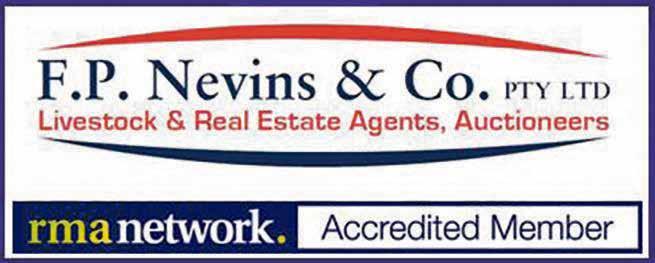
Luke Nevins 0418 510 166
James Nevins 0407 302 900
Chris Nevins 0408 510 626
Craig Campbell 0427 346 645
Johno Lacey 0492 844 484
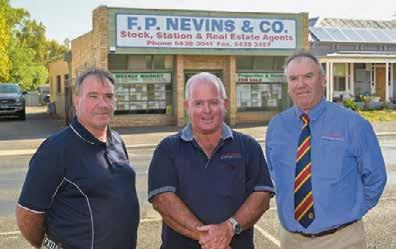
Rochester
Tony Hooppell 0427 842 228
Bruce Foster 0418 507 819
Hamish Hooppell 0428 004 349
Nicki Henderson 0429 796 054
F.P Nevins was established in 1923 and has been a family owned and operated business. With two office locations at Inglewood and Rochester and local agents with a wealth of knowledge.
• Specialise in the sale of Real Estate whether by auction or private contract.
• Specialise in Clearing Sales, from household chattels to rare and antique machinery/equipment. Onsite or online with AuctionsPlus.
• Specialise in the marketing and sales of livestock, primarily lamb, beef, and pork.
• With sales held: Weekly on Monday at Bendigo for sheep.
Echuca prime sale held fortnightly on Wednesday 8am.
Echuca store sale held on the first Monday of the month at 10am.
• Specialise in “over the hooks” trading.
• Facilitate in the purchase/payment of livestock, securing product from all over the country.
F P Nevins & Co Pty Ltd are regarded as one of the quickest payers of clients within the industry, payments being made every Wednesday/Friday by cheque or electronic transfer. F P Nevins & Co Pty Ltd are experts in their field and travel anywhere to facilitate their clients’ requirements. We are career professionals, continually trying to improve with development programs and seminars being run through the organization ALPA.
Selling and buying real estate or livestock, as well as managing clearing sales can be daunting and choosing the right agent can be hard. Give us a call for a chat and some helpful advice regarding your property or sale.
THIS IS WHAT WE KNOW, THIS IS WHAT WE DO!



Kevin Hicks Real Estate have been engaged to sell the Gilbert family property at Baxters Road, Picola.
This early preliminary notice hopefully provides the time for all prospective buyers to be ready to buy ‘one of the best’ mixed farming businesses in the highly regarded Picola district.
The Gilbert family have successfully farmed this property for over 80 years with owners David & Wendy Gilbert, building their family home in 1995 and developing the property to a high level mixed farming enterprise.
This farm is a once in a lifetime sale opportunity and will go under the hammer at Auction in October.
Contact Kevin Hicks today on 0428 271 270
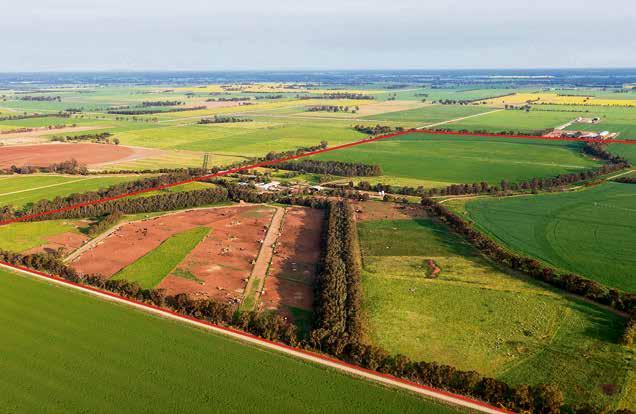
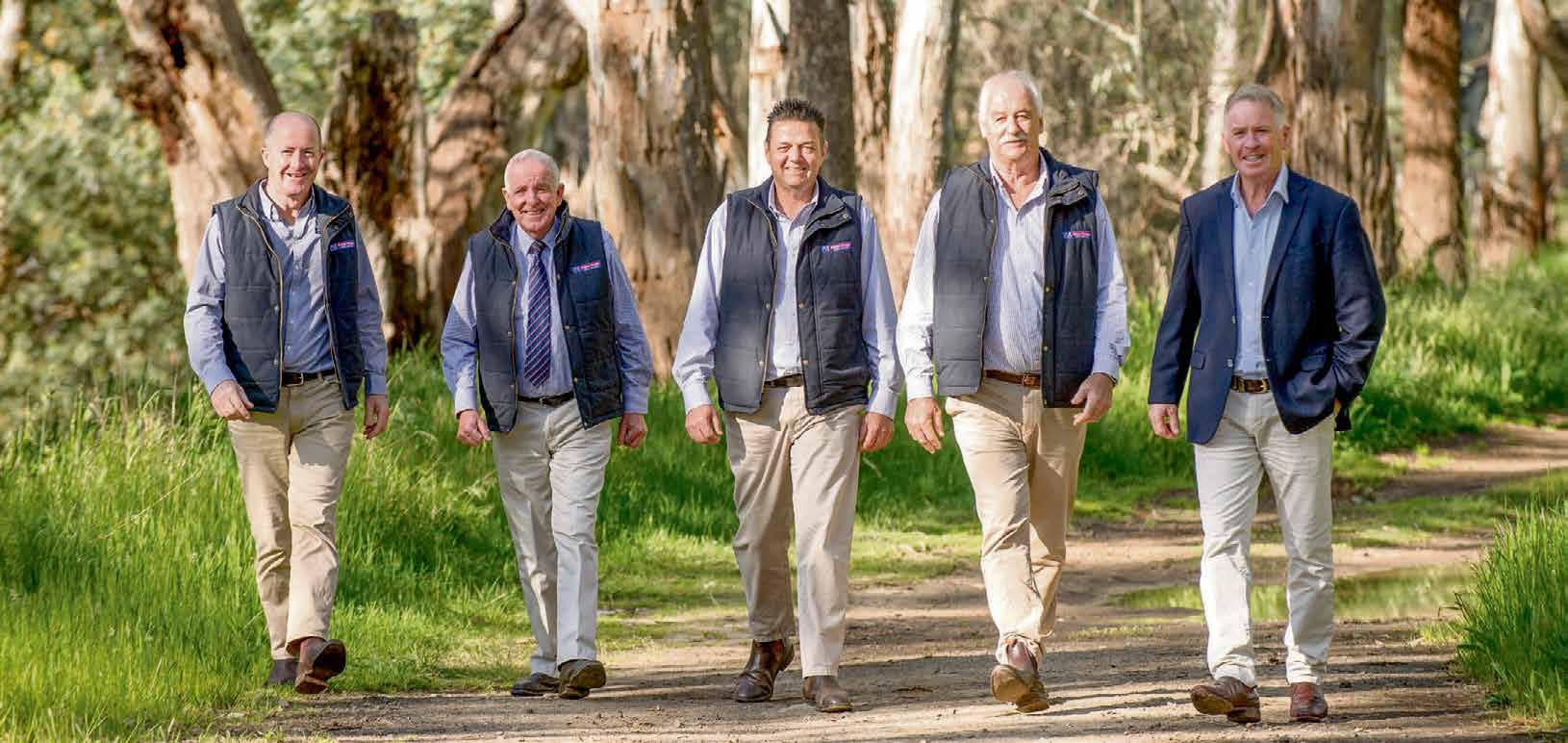
Let our experience and knowledge guide you through the process from appraisal to completion.
The sale of your property, especially a family farm, is often a once-in-a-lifetime decision. At Kevin Hicks Real Estate, we understand the significance of this choice and are dedicated to ensuring you achieve the best possible outcome.
We take pride in our work and embrace the responsibility that comes with helping you navigate this important process.
Contact us to discuss how we can assist you in making your property sale a seamless and successful experience.
Make the right decision – talk to us today.
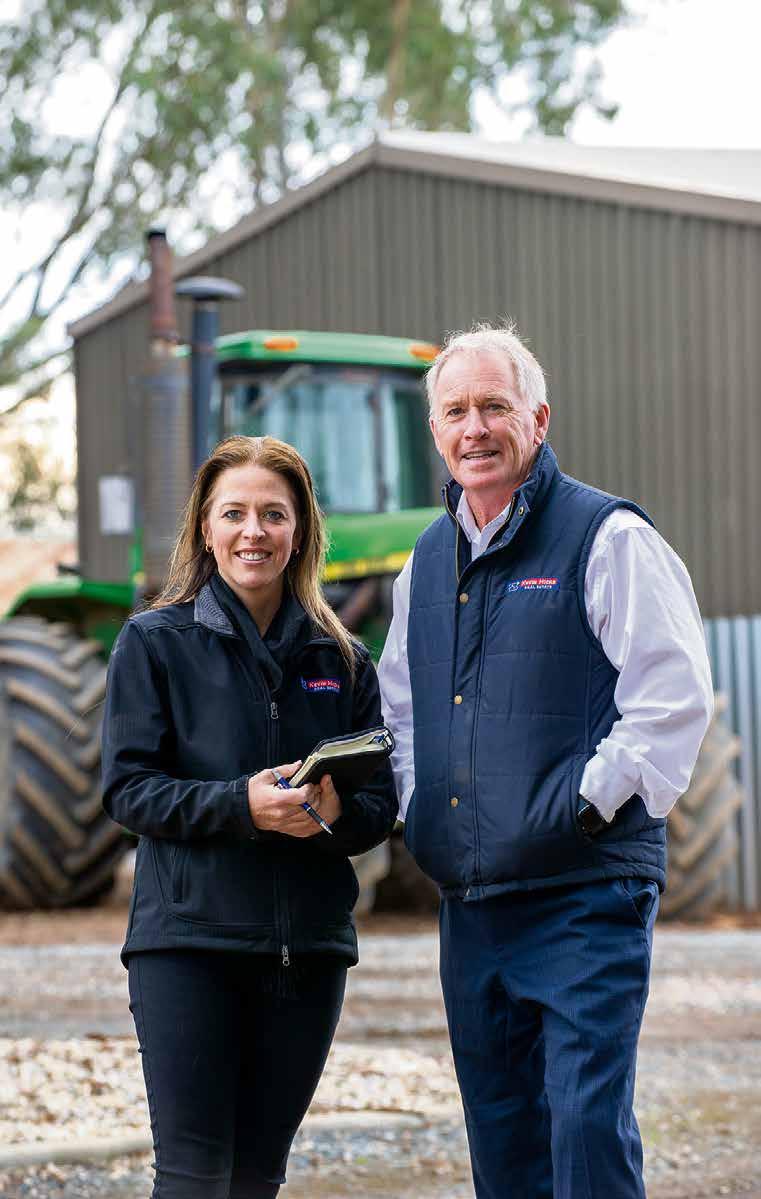
Our Clearing Sale team, managed by Chelsea McKay, is passionate and takes pride in what they do, providing the attention to detail required to achieve successful outcomes.
The modern approach to Clearing Sales today demands precision and dedication, and our committed team excels in delivering just that. With expertise in processing online sales, we consistently achieve exceptional results for our vendors.
Presenting a Clearing Sale today involves a great deal of effort, but our professional team is more than capable of handling the challenge. Whether you’re looking to sell agricultural equipment, machinery, or any other assets, our team ensures a seamless and profitable experience.







“Peter




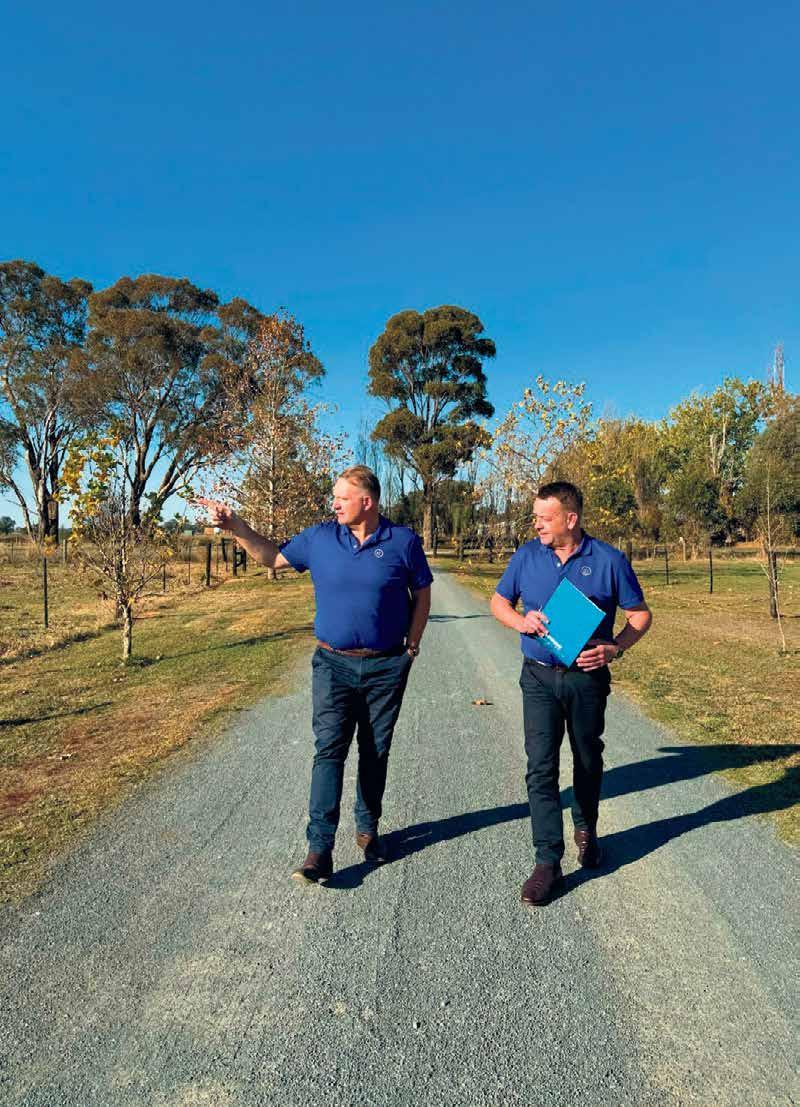

“Andrew was fantastic to deal with! His honestly and calmness made selling our property stress free. His communication from start to finish has been expectional. Andrew you are the perfect blend of professional, efficient, genuine, sincere with a personal touch. You have cared for our property as if it were your own. I would have no hesitation recommending Andrew Pogue!”





Australian farmland prices are set to rise again this year, but growth will be slower than in the past three years, according to the yearly snapshot from Rabobank.
The agricultural lender forecasts farmland value will increase in the next 12 months across all sectors by five per cent per hectare, with cropping land to outperform grazing land.
“Land prices will maintain their growth trend, but not for all sectors and regions,” the report said.
“Land that is used to produce crops like wheat, lentils, canola and cotton, will take the lead in price growth, because they have a better price outlook than other commodities,” report author Vitor Pistoia said.
After three consecutive years of ‘double-digit’ growth, the momentum in agricultural land price increases will
slow in 2024, as farm profitability levels come off record highs.
Last year farmland prices increased by 11 per cent on average, while it increased by almost a third the previous year.
The data shows the number of farms being sold continues to drop too, with national sales declining 35 per cent in 2023.
This varied across the states with transactions down 43 and 44 per cent
Victoria’s food supply is being undermined by increasing land-use competition, fractured planning decisions and a lack of an overarching strategy to develop and feed the state, an inquiry has been told.
VFF president Emma Germano said the state’s agricultural potential was being compromised because incremental planning decisions at different government levels were encroaching on productive land.
“We lack an overall or overarching strategic plan around food supply and … we fail to even value the economic benefit of that food supply in this state,” Ms Germano told the legislative assembly committee inquiry into securing food supply recently.
“We’re seeing the degradation of the amount of land and they’re not making any more of it.”
Melbourne’s population is expected to grow from about five million people to nine million by 2050, while Victoria’s is expected to grow to 11 million, a transport and planning representative told the committee.

“This population growth increases the demand for food and fibre production and places pressure on natural systems, urban areas and farmlands,” strategic land use planning director Michael Orford said.
He said the Victorian Government’s land-use action plan, released in March, set out measures to protect Victorian agricultural land and food production, on top of existing legislative measures such as Melbourne’s urban boundary and zoning restrictions.
RMIT environment and planning professor Michael Buxton said the land-use planning system had been used to undermine policies aimed at protecting the agricultural use of Melbourne’s green belt.
“It has expanded the urban growth boundary, introduced urban-related uses in green wedge zones … and further radically deregulated the planning system,” he told the committee.
Prof Buxton called for a rigid urban growth boundary for the city, which would also protect agricultural and environmentally significant rural areas from development.
Ms Germano said Victoria’s population growth provided opportunities and complications for the state’s agriculture sector.
“There’s going to be more opportunities locally to supply our food,” she said.
“(But) it means that there’s going to be more challenges in regards to that land-use conflict.”
in Western Australia and Victoria, but only six per cent in South Australia.
“Large deals with sales above the A$10 million threshold also declined, down 33 per cent year-on-year and about in line with the decline in all farm sales,” Mr Pistoia said.
The report analysed more than 1500 sales from 2023 and more than 11,000 sales from across the country since 2019.
Ms Germano said farmers were expected to host biodiversity services, carbon sequestration and renewable infrastructure while also producing food.
Food systems network Sustain backed calls for a national food supply chain map after the COVID-19 pandemic uncovered weaknesses.
“What the pandemic showed us was that the supermarket supply chain, which was very centralised, really struggled during those those supply chain disruptions,” Sustain co-founder Kelly Donati said.
Municipal Association of Victoria senior policy adviser James McLean said a lack of state policy planning framework left councils lacking direction in local level planning decisions.
“What council planners, when it comes to food supply and protecting agricultural land, are most worried about is this sort of death by a thousand cuts,” Mr McLean said.
“It’s about having really strong policy to say ‘we’re drawing the line here’ and going ‘actually, the housing supply needs to happen in these areas’.”
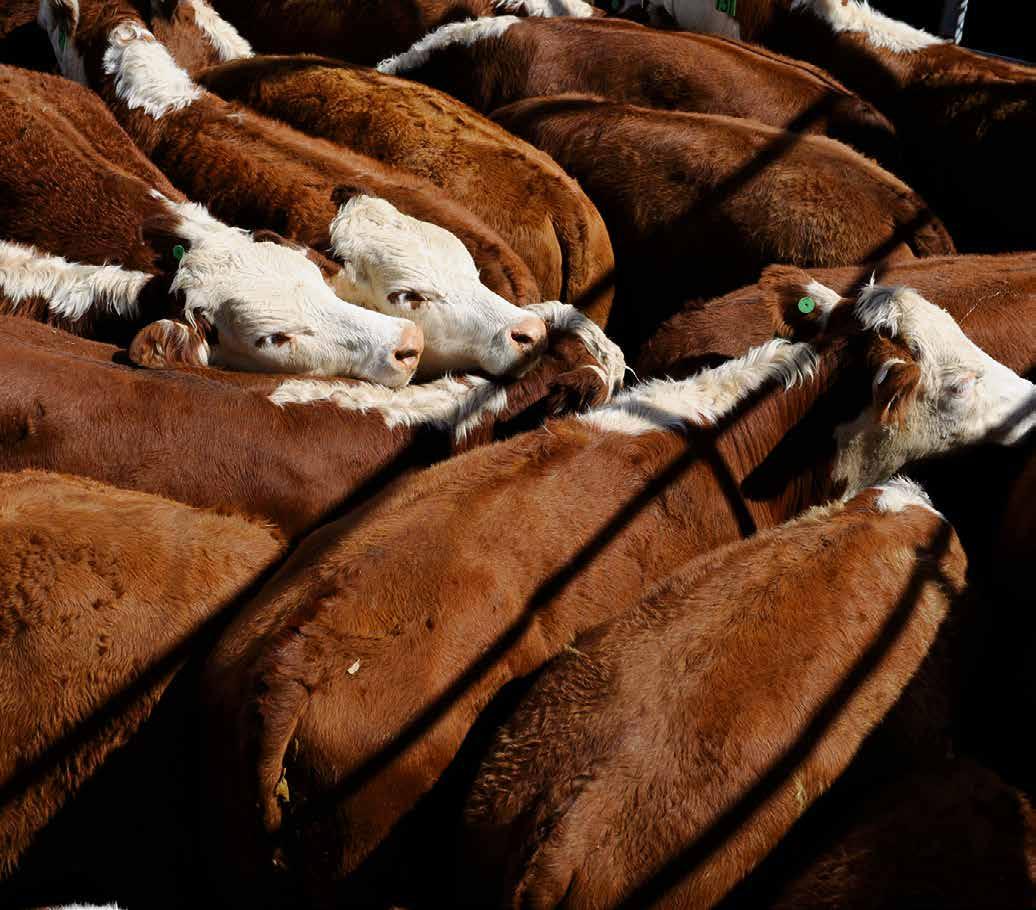
Anew cattle market indicator that offers a complete view of the national restocker market has been launched by Meat & Livestock Australia.
The National Young Cattle Indicator, or NYCI, is a new national restocker indicator covering multiple sales channels across the country.
The NYCI is expected to be used as the most accurate national analysis tool of the restocker market.
MLA’s Stephen Bignell said the NYCI would provide a user-friendly interface for producers and other stakeholders.
The indicator will cover yearling, vealer and weaner cattle over 200 kg liveweight which are bought and
sold as restocker animals, meaning they will return to a farm to replace livestock, be grown out, or join the breeding herd.
The NYCI will cover cattle sold anywhere in Australia, unlike the Eastern Young Cattle Indicator (EYCI) which only covers saleyard markets on the east coast and the Western Young
Cattle Indicator (WYCI), which covers cattle sold in the west.
“MLA collects a large amount of market information and is continually looking for ways to share this information with the industry in practical and useful formats,” Stephen said.
“The NYCI will be an extension of this, combining and expanding two information sources, the EYCI and the WYCI, on a national scale.”
Stephen said the industry had used the popular EYCI as a ‘catch-all’ of the cattle market, despite the indicator shifting in recent years.
“The opportunity in developing the NYCI is that MLA will have an indicator fit for use for each of the main buyers, processors, feedlots and producers,” he said.
“As processor demands have shifted to larger carcase weights, today most EYCI cattle are purchased by restockers or feeders.
“As the EYCI is a reactive indicator, industry often uses it as a catch-all for the market and producer confidence.
“It was identified that industry was in need of a more accurate national restocker indicator, so we’ve developed the NYCI.”
Importantly, the publication of a restocker specific indicator aggregating multiple channels will improve market information and deliver greater insights.
Similarly to other indicators, the NYCI will feature:
• NYCI price and head count displayed above a 12-month graph.
• Change over day, week, month and year.
• Saleyard contributors section will display saleyard and online breakdown; head, average value, and per cent contribution.
• A heifer/steer/mixed breakdown graph shown at bottom of the graphic.
• Ability to filter the information by state and report date.
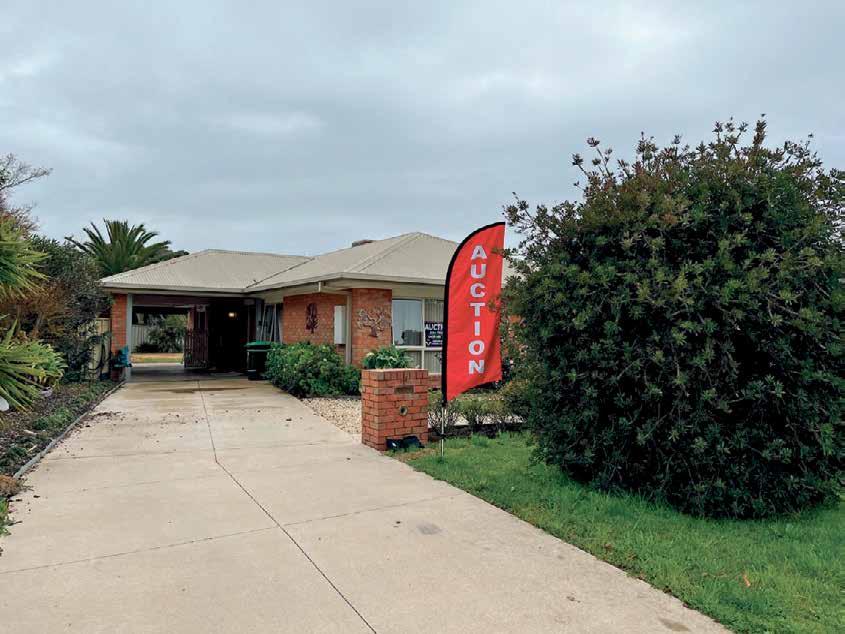
There’s a new podcast that discusses all things sheep genetics and how sheep producers can make best use of the genetic tools available.
Ewe-niquely Genetics is a podcast by Meat & Livestock Australia’s Sheep Genetics, hosted by Chloe Bunter, featuring in-depth interviews with scientists, old and new faces from sheep genetics history, breeders and more.
MLA’s Sheep Genetics manager Peta Bradley said the podcast was another method to engage with producers in meaningful and impactful ways.
“Agriculture is an ever-changing landscape, and we recognise our clients have busy and dynamic businesses,” Peta said.
“Podcasts are an easily accessible and popular method of communication for producers.
“Producers can listen at any time, re-listen if needed and when it suits them. The content can be listened to in their home, car or in the paddock.
“Developing and maintaining a podcast also allows the Sheep Genetics team to cater content to suit the time of year and distribute relevant
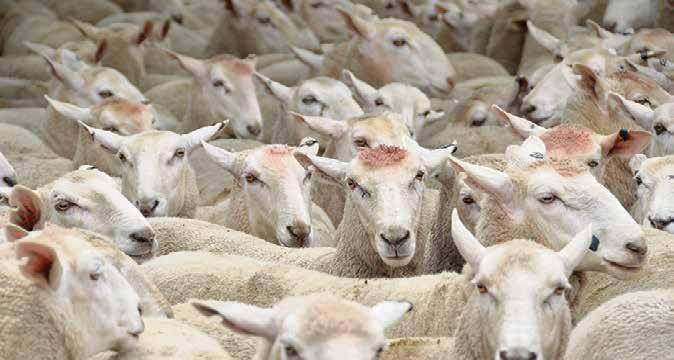
information in a timely manner.”
Ewe-niquely Genetics aims to maintain and further increase the high level of knowledge and understanding of the world-leading Sheep Genetics analysis to ram breeders.
It will also give information about genetics in an easily consumable
fashion, enhancing the understanding and knowledge of genetics to the wider agricultural industry.
Episode one was released on May 1. Episodes will be released fortnightly on Spotify.
To listen to the podcast, visit: info.mla.com.au/



The Nvl team has a wide range of experience across Livestock, Real Estate & Clearing Sales. We are established agents in the Echuca and Shepparton Saleyards and pen cattle for Auction at Both Store & Prime Sales and special sales. Our agents have a vast experience in marketing and auctioning items from household items, rare/antique items and machinery/equipment. In Online or onsite manner depending on what best complements each vendor. Being a privately owned company it allows us to work with our clients with a more personal approach, whether that be a as vendor or buyer.

The Nvl team has a wide range of experience across Livestock, Real Estate Sales. We are established agents in the Echuca and Shepparton Saleyards cattle for Auction at Both Store & Prime Sales and special sales. Our agents vast experience in marketing and auctioning items from household rare/antique items and machinery/equipment. In Online or onsite manner on what best complements each vendor. Being a privately owned company it allows us to work with our clients personal approach, whether that be a as vendor or buyer.

Jayden Ferrari: 0400295867


Neil Maddison: 0427505053 Travis Thompson: 0427990779
Will Lockhart:0458037787 Mick Kay: 0407688186
Damien Kennedy: 0427735400 Andrew Colvin: 0428824679
Jayden Ferrari: 0400295867 Craig Cox: 0400106949
Kat McLeod: 0418758905 Phil Serra: 0400572901
Neil Maddison: 0427505053 Travis Thompson: 0427990779
Morgan Spencer: 0427503756
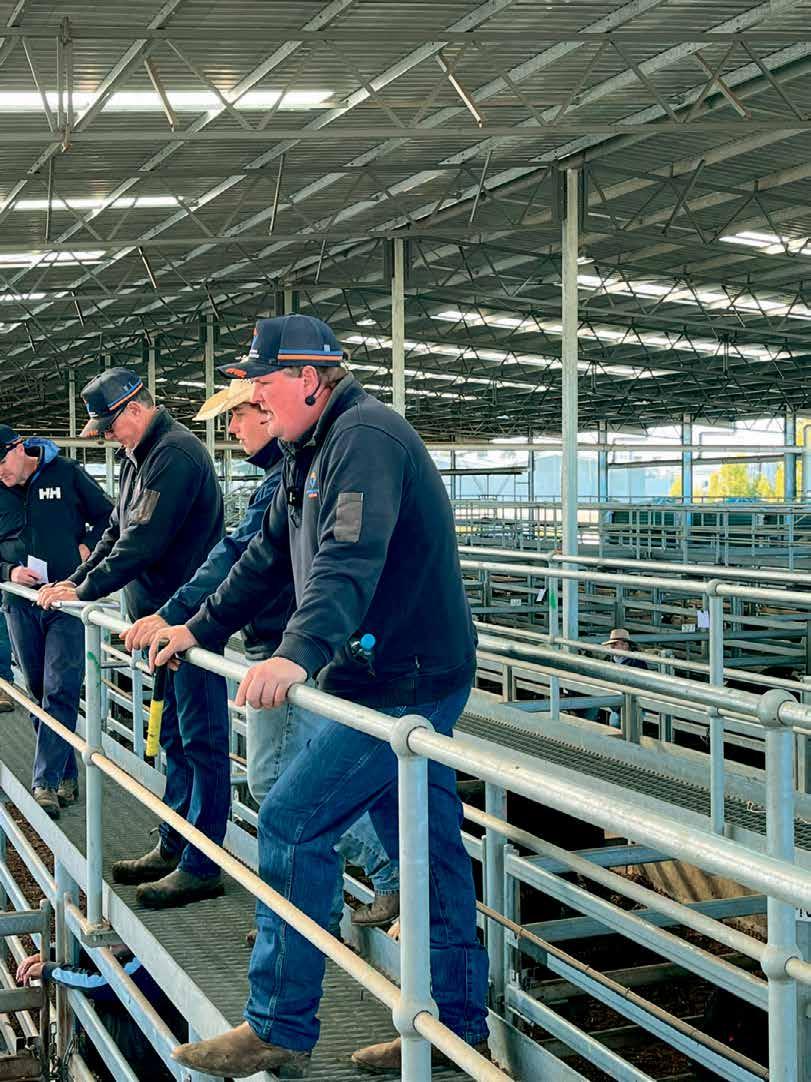
John Moyle: 0428588335
Will Lockhart:0458037787 Mick Kay: 0407688186
Neil Maddison: 0427505053
Damien Kennedy: 0427735400 Andrew Colvin: 0428824679
Bec Dicker: 0455144775 Office: Raelene ODonoghue & Bec Dicker
Kat McLeod: 0418758905 Phil Serra: 0400572901

Morgan Spencer: 0427503756 Real
John Moyle: Neil Maddison: Bec Dicker: 0455144775 Office: Raelene ODonoghue & Bec Dicker
(03)54823845 office@northvic.com.au - www.northvic.com.au
The CSIRO is adding value to the beef sector, turning red meat into a highly nutritious powder to give an allergen-free protein boost to snacks and beverages.
The Just Meat protein powder can be used in products that have remained elusive to the meat sector, targeting a $3.8 billion health and wellness market opportunity.
The powder’s nutritional and allergen-free profile sets it apart from other protein powders on the market
so it can appeal to a wide audience in products ranging from protein balls and shakes to energy drinks.
The powder has the potential to grow Australia’s $75.4 billion red meat industry, by capturing more value from a greater percentage of the carcase.
Dr Aarti Tobin, animal protein lead for CSIRO’s Future Protein Mission, said the powder can be used as-is or as an ingredient in a wide range of products.
“The advantage of a meat-based protein is that it naturally contains all essential amino acids, as well as high iron, zinc and magnesium,” Dr Tobin said.
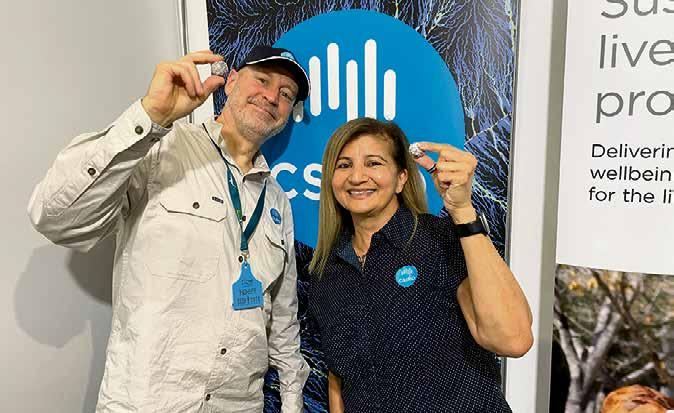
“It’s mild in flavour and highly soluble so we’ve easily added it to snacks like sweet protein balls in our product development kitchen, with promising results to take to product trials.
“We’re looking at new protein products to meet changing consumer preferences and which will play a big role in feeding a growing world population that’s set to reach 9.7 billion by 2050.”
The protein powder can also support food security by delivering meat’s nutritional benefits to remote locations or in disaster relief by overcoming
refrigeration and transportation hurdles.
Meat & Livestock Australia is an investor and collaborator in the product’s development.
MLA science and innovation manager Michael Lee said there was a growing global demand for convenient and nutritious food as the world’s population increases.
“Products like this meat protein powder can help to cater to this demand by providing a shelf-stable, easily transportable and versatile source of protein,” he said.
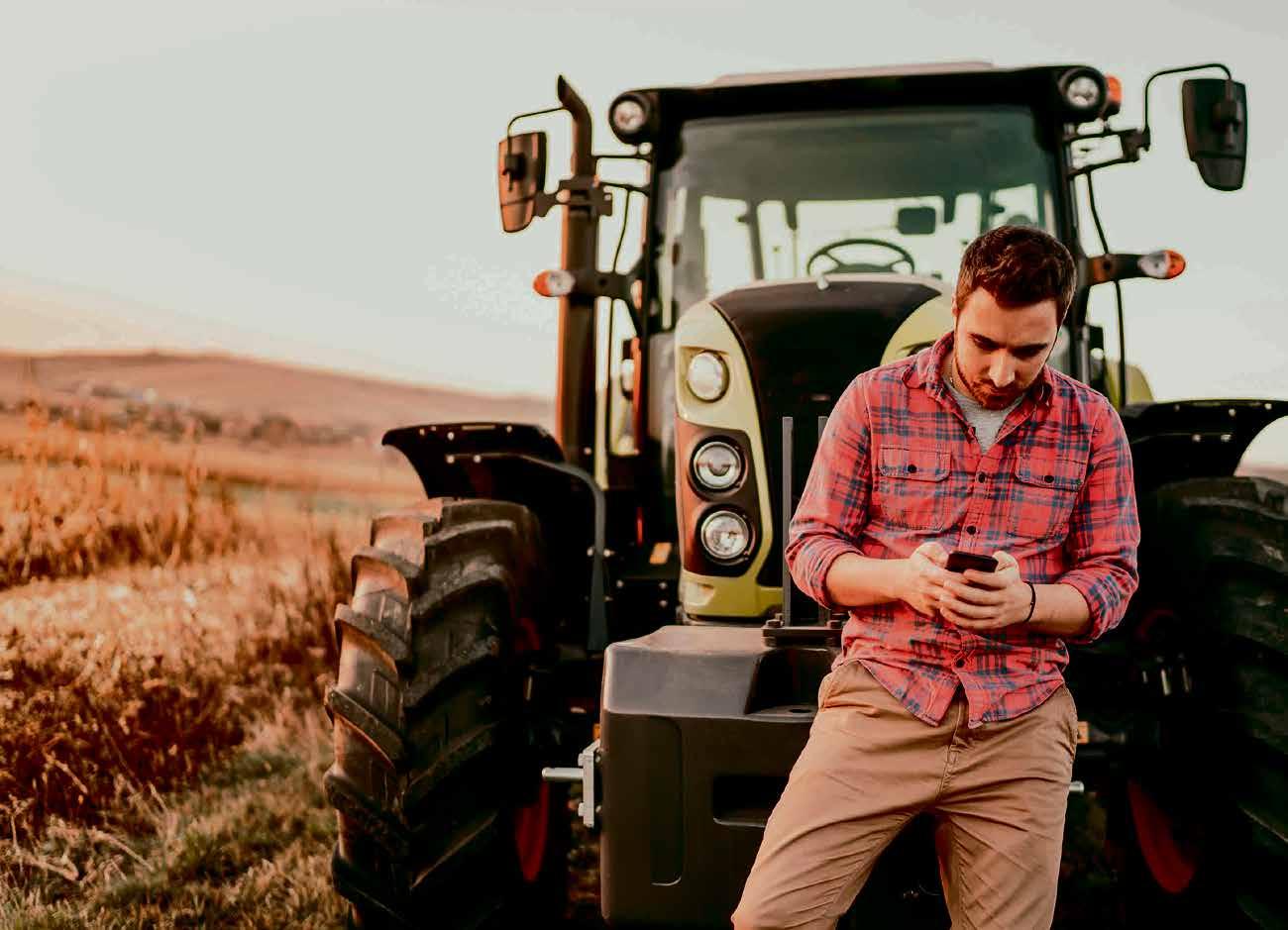

Inwhat some may consider a nod to a stalled market, an Australian manufacturer has launched a new half meat- and half plant-based product described as the next evolution in food.
Food technology business, Harvest B, has filed a patent on the product which it says is a world first.
“For those who don’t want to go to a plant-based diet purely because of taste, here is a halfway point where they can experience something but still have a positive impact,” contributing designer Daniel Mullette said.
“Rather than saying it’s an either or, we’re trying to address that different people want different things.”
The plant protein manufacturers launched in Sydney in December 2022, with the founders’ mission to replace animal protein with a novel plantbased approach, while adding value for Aussie grain growers.
But taste and texture have been a major challenge for the plant-based meat market in Australia.
“I wouldn’t say that it’s not working in plant-based meat but there is maybe a ceiling with how many consumers are converting,” the company’s CEO and co-founder Kristi Riordan said.
“Many, many, many people love to cook meat,” she said.
Harvest B’s new diced beef and lamb “complementary” dish was available for sale from April.
“We’re actually taking advantage of that great flavour that people know and love from animal protein,” Kristi said.
“It looks like meat, it tastes like meat but because we’re blending the animal and the plant together, we’ve got a more holistic nutritional profile.”
The product is just one of a rising number of alternative meat choices on offer.
The latest data from the alternative proteins council shows a 15 per cent rise in the number of alternative meat products over the past three years, with almost 300 products available to buy.
But the data doesn’t reveal how well the goods are selling.
That information is expected in a new state of the industry report due in the coming months.
“There are still new products coming into the market,” the council’s head Jennifer Thompson said.
In 2019–20, Australia’s plant-based meat sector generated $185 million in sales and Jennifer said the industry continues to grow.
And in a significant step for food manufacturing, Australian company Vow has received approval in

Singapore to serve cultured meat products derived from Japanese quail.
The lab-developed product is believed to be the first of its kind approved anywhere in the world and comes after more than a year of regulatory assessments.
“It’s a huge milestone,” Jennifer said.
“It certainly adds weight to the commercialisation and validity of the emerging industry.”
While Australian regulators are yet to decide whether the lab-created quail can be eaten here, Vow CEO George Peppou said the Singaporean approval
represents a shift for the cultured meat industry.
“We believe the future of cultured meat is not in replicating what already exists but in creating deliberately different foods designed for meateaters,” George said.
Meanwhile the latest blended meat offering from Harvest B shows the company has identified an opportunity in the market, according to Jennifer.
“It’s growing the pie, that’s economically great for Australian farmers and great for the country,” she said.
Daniel Mullette, Kristi Riordan and Alfred Lo in the Harvest B kitchen in Sydney. Photos: AAP Image/Flavio BrancaleoneDrones are playing an increasingly significant role in keeping Goulburn-Murray Water’s lakes, dams and reservoirs safe and secure.
G-MW recently rolled out drone competency and mission plan training to about 25 of its storage officers spread across northern Victoria.
In addition to these staff obtaining their drone operator accreditation, the training helped show them how drone use could create efficiencies in their daily work.
G-MW storage operations south manager Paul Beard said the expanded use of drones had the potential to be highly beneficial.
“Our storages are crucial pieces of infrastructure, and we undertake regular inspections of all of them to ensure they are safe and in prime operating condition,” he said.
“A lot of these inspections have been done in person, but we have recently trialled inspecting several of them using drones.”
The embankment at Lake Eppalock is one of the first areas where G-MW trialled the drone inspections.
Paul said these flights had shown a lot of promise.
“Usually, we would have someone walk the embankment and look for any cracks, movement, or changes,” he said.
“Staff would walk across a narrow gravel track midway up the spillway, and the path was a little hazardous in some areas.
“Using a drone has helped us complete these inspections more efficiently and safely.
“The data we get from them is also more consistent, which is important for our dam safety responsibilities.”
Storage officers are also investigating the usage of drones as a compliance measure, such as using them to monitor five knot zones at G-MW storages and capture the licence plates of any offending vessels.
G-MW survey services manager Avni Bekirofski said there was plenty to be gained from expanding the corporation’s drone fleet.
“In recent years, the Surveying Services Team has benefited greatly from the use of drones, by way of data capture and remote access,” he said.
“We’re a relatively small team that covers a massive region, so having more people trained and confident in using technology like drones will create significant efficiencies in other areas of our business.
“It is great to see our storage staff already finding new uses for the drones that support G-MW operations, so we are eager to see and benefit from more innovation in this area.”
